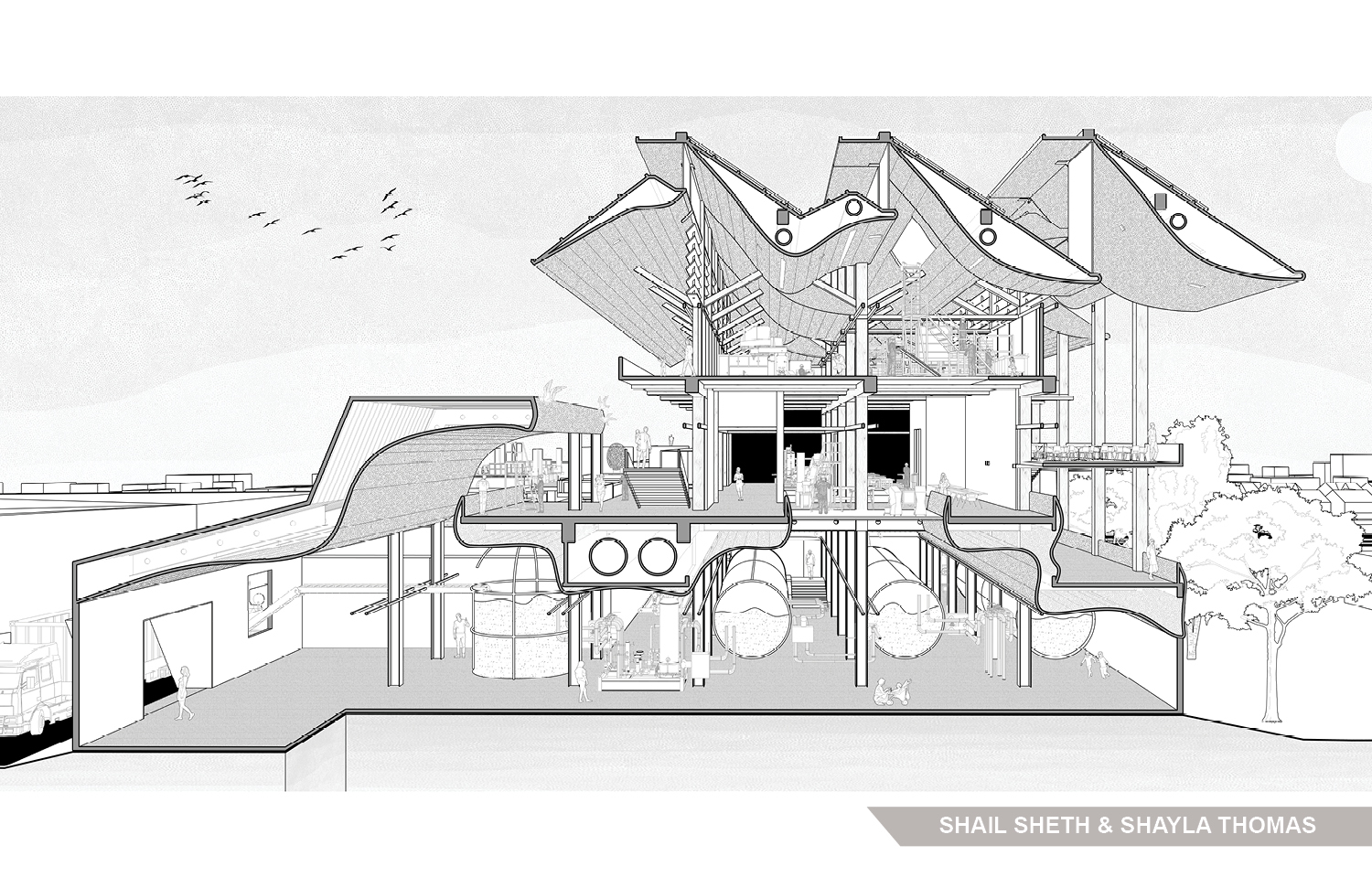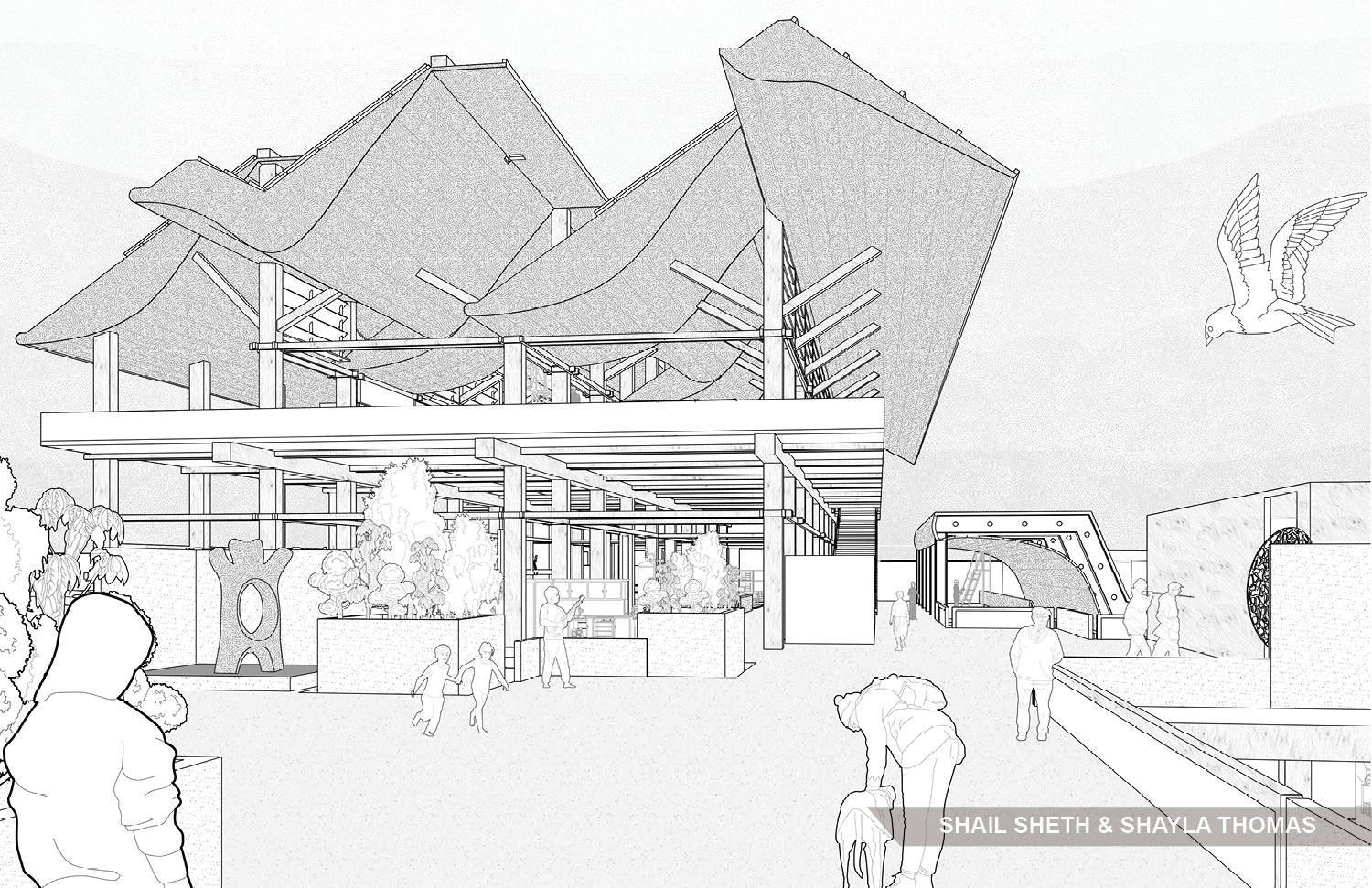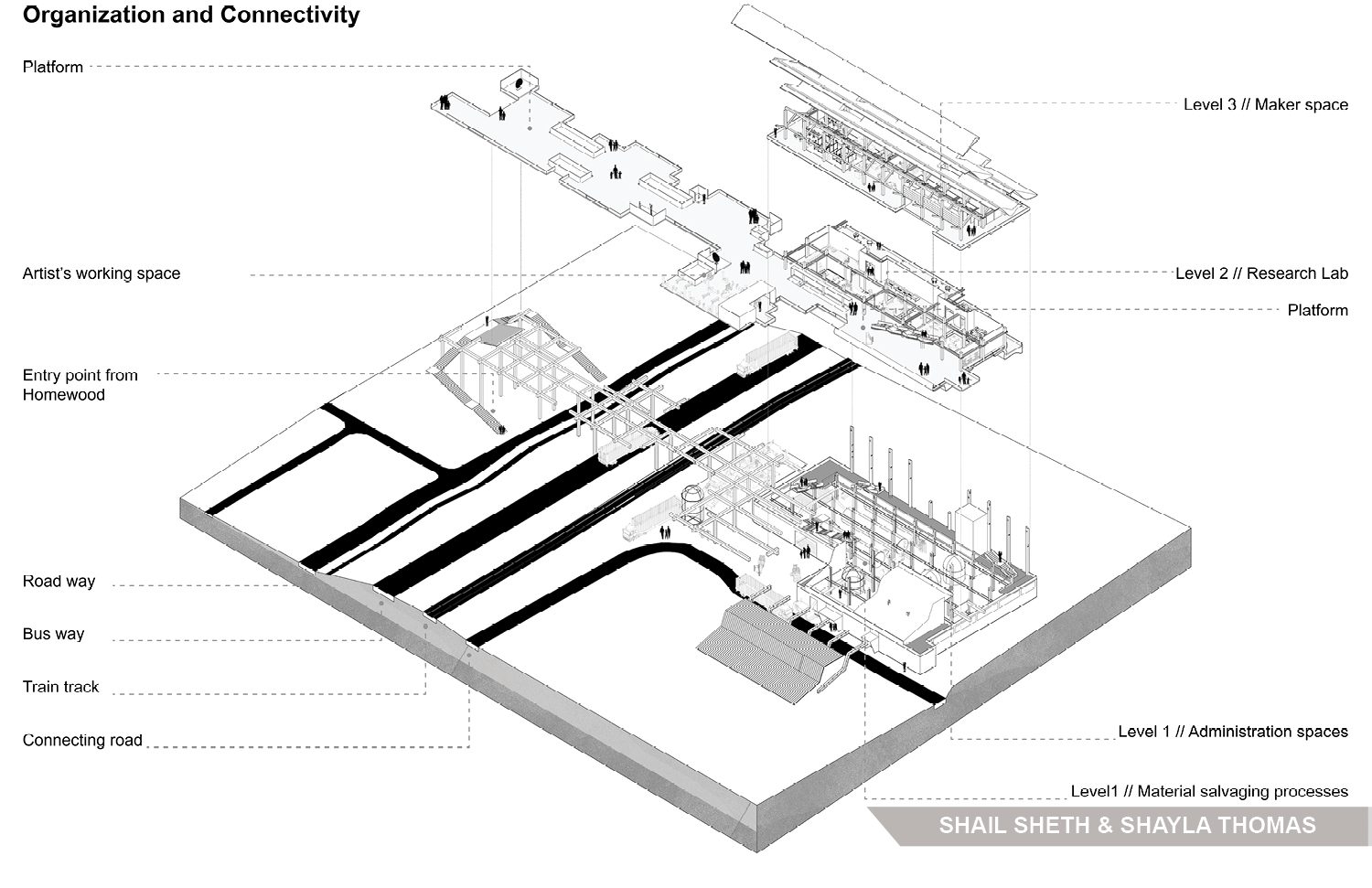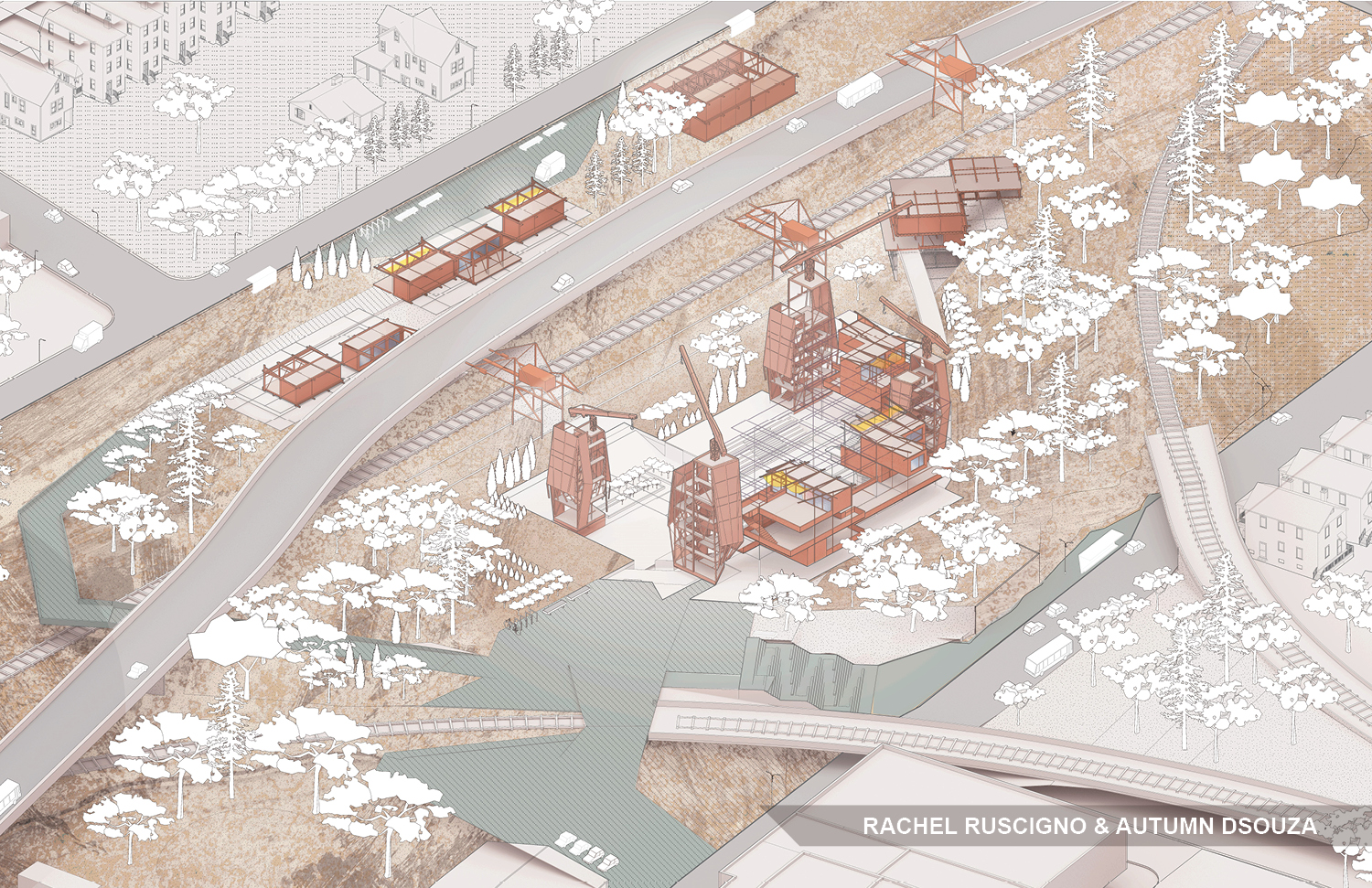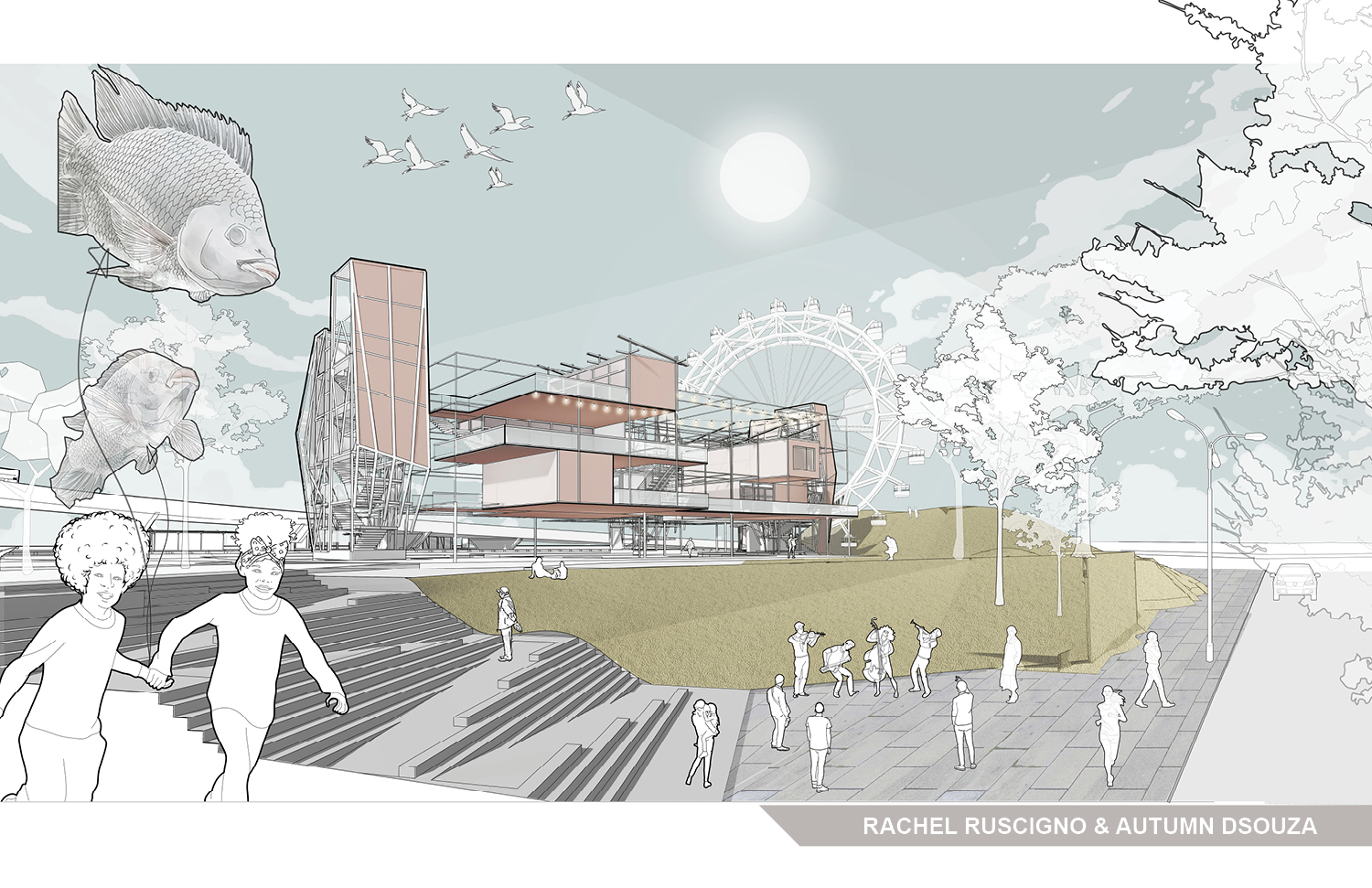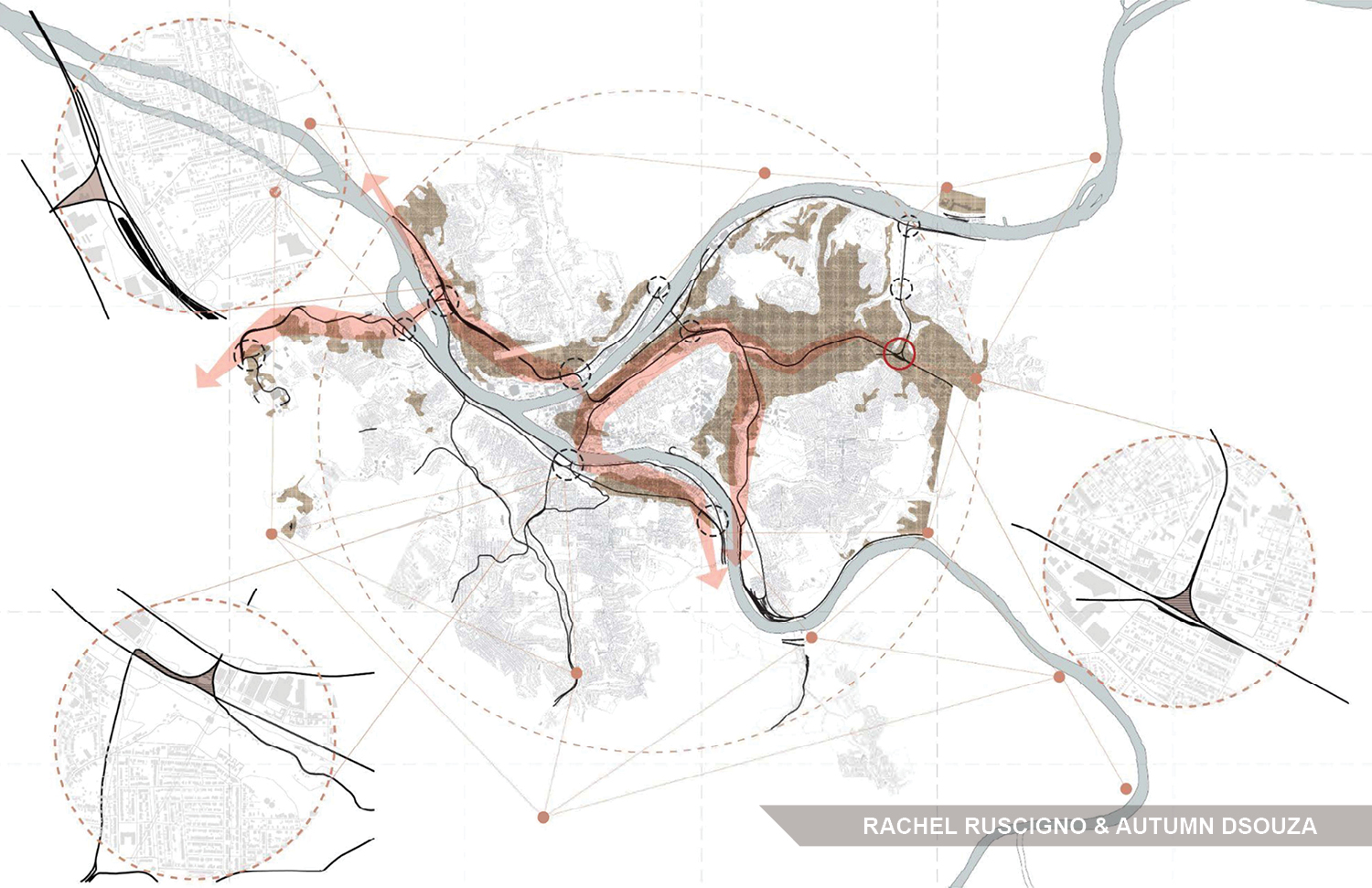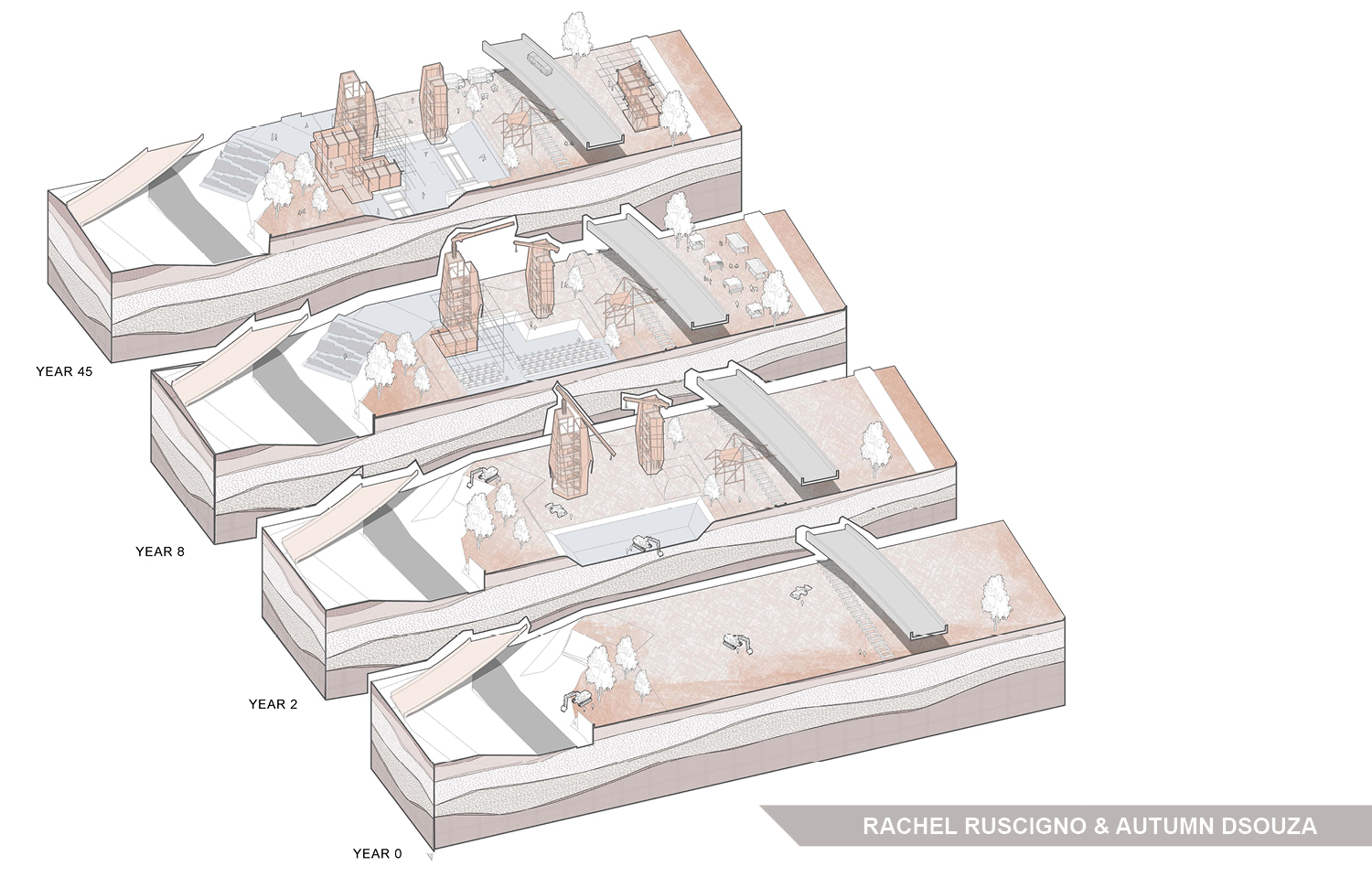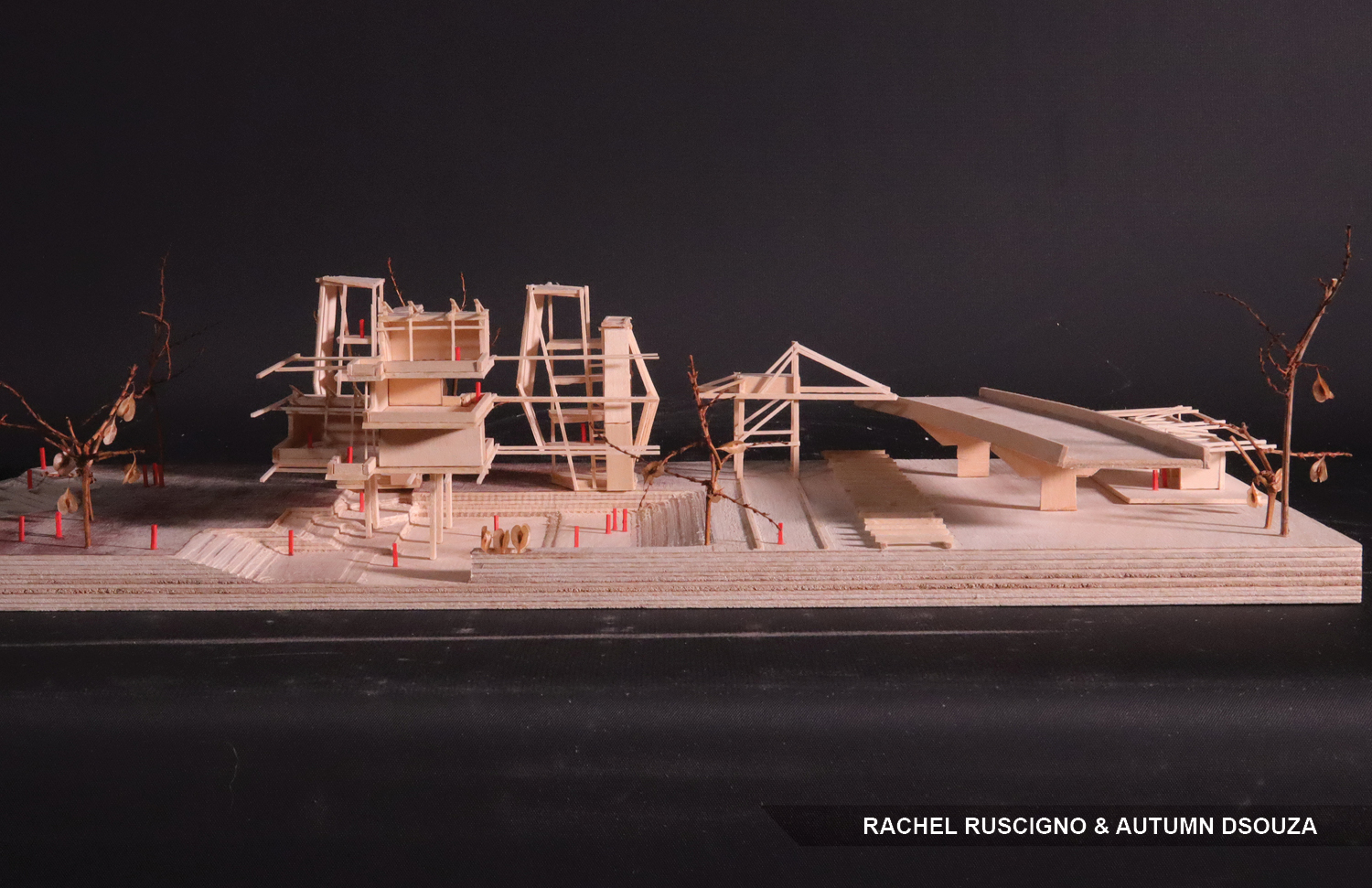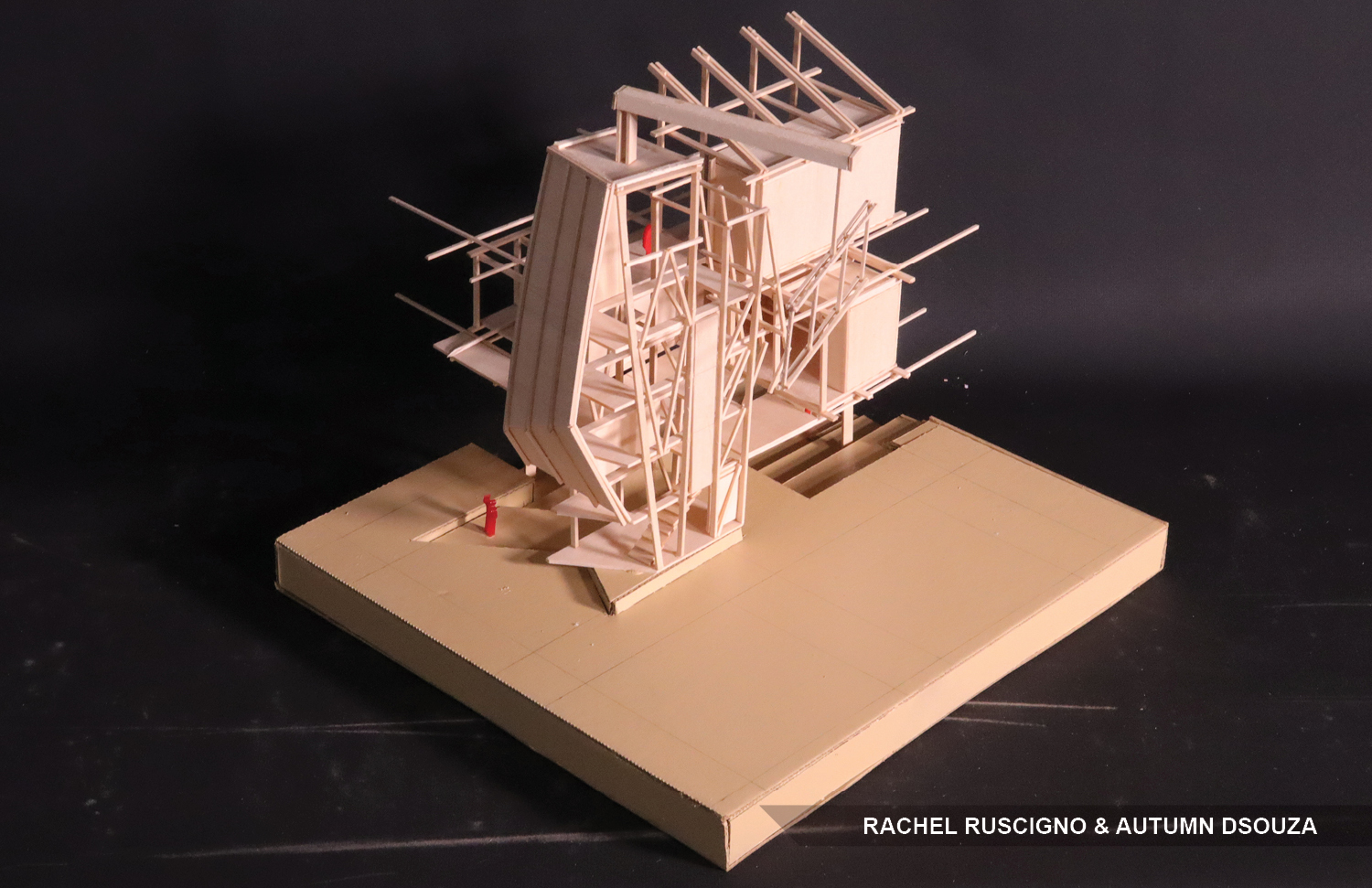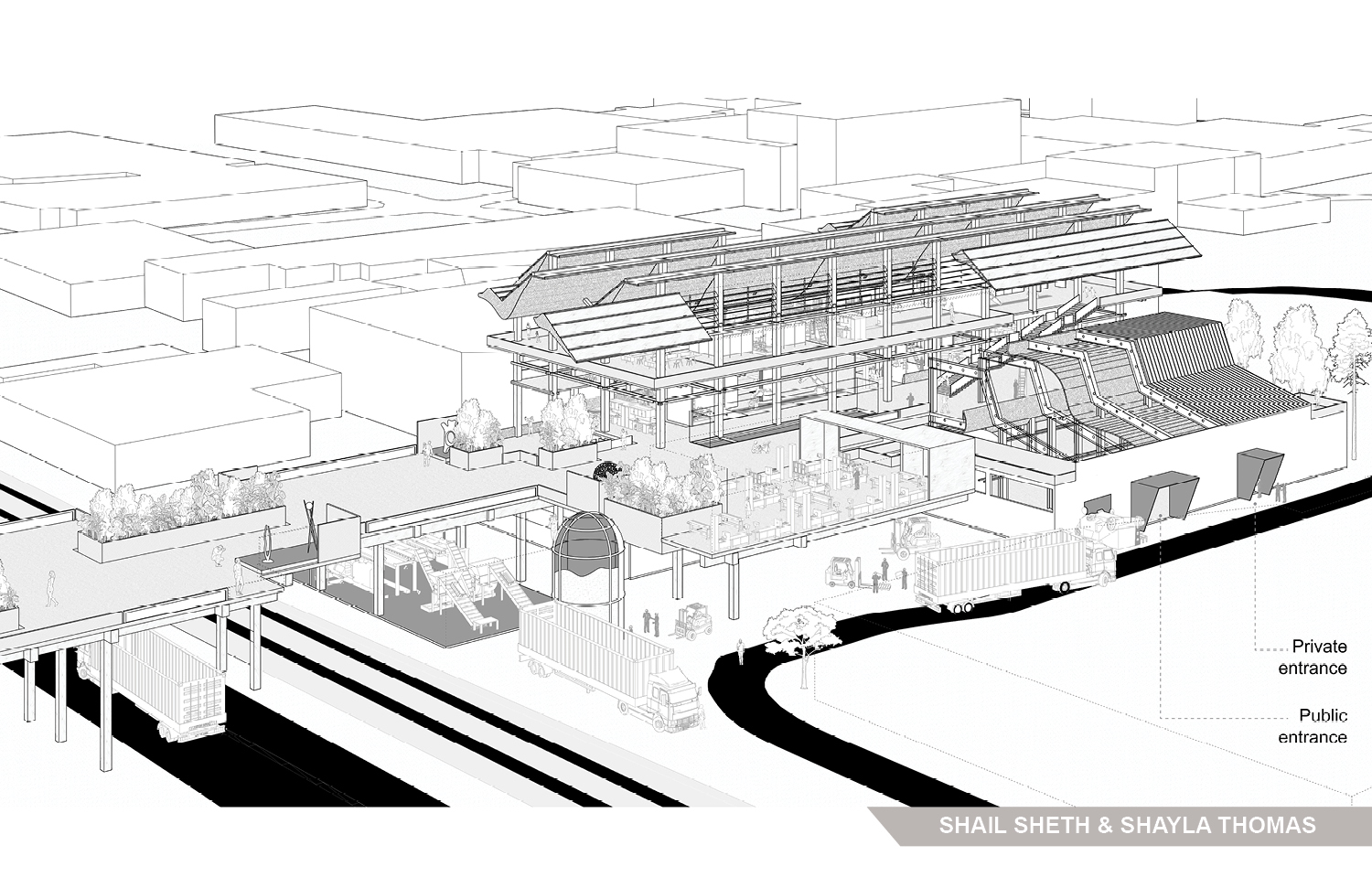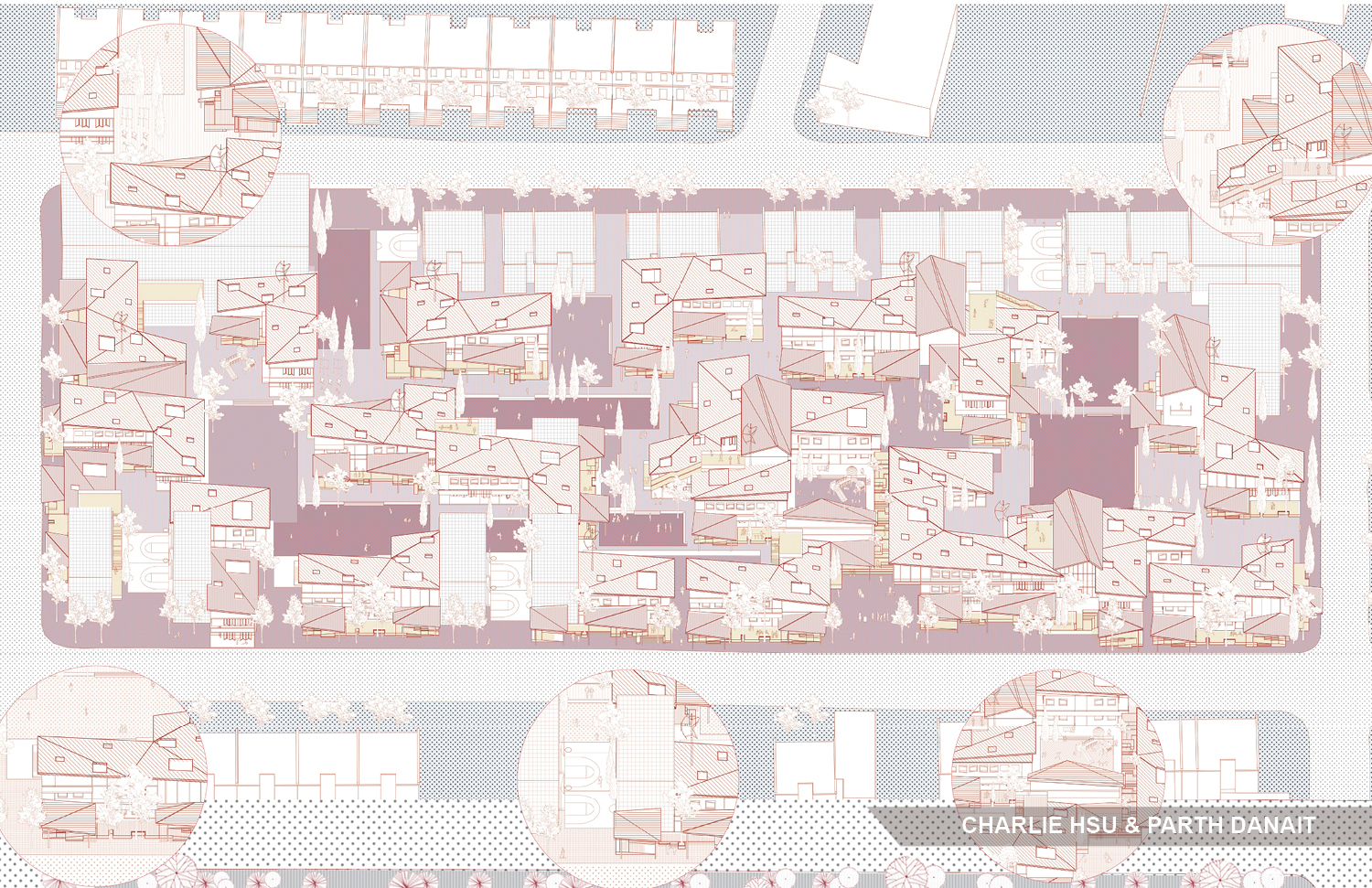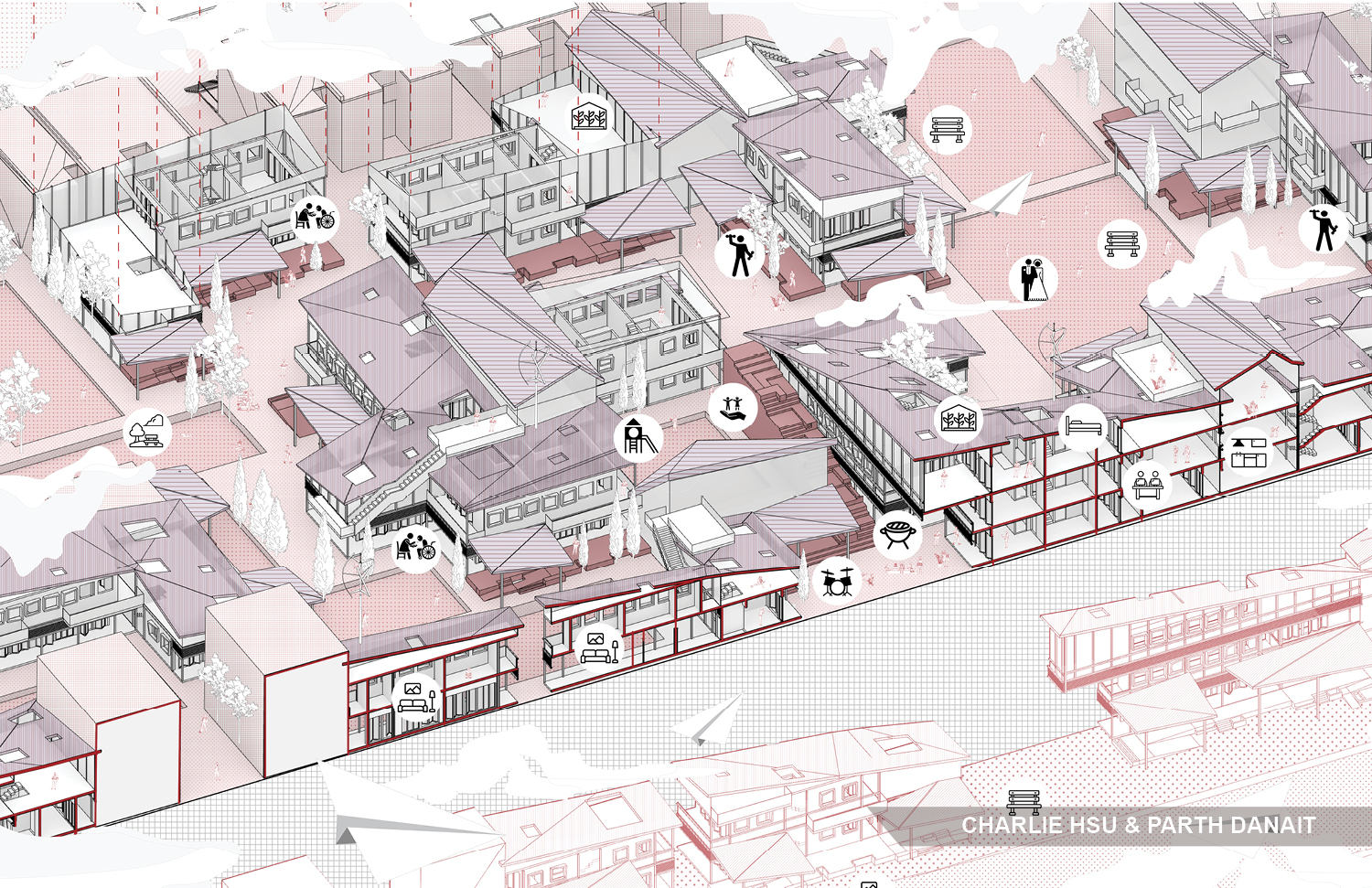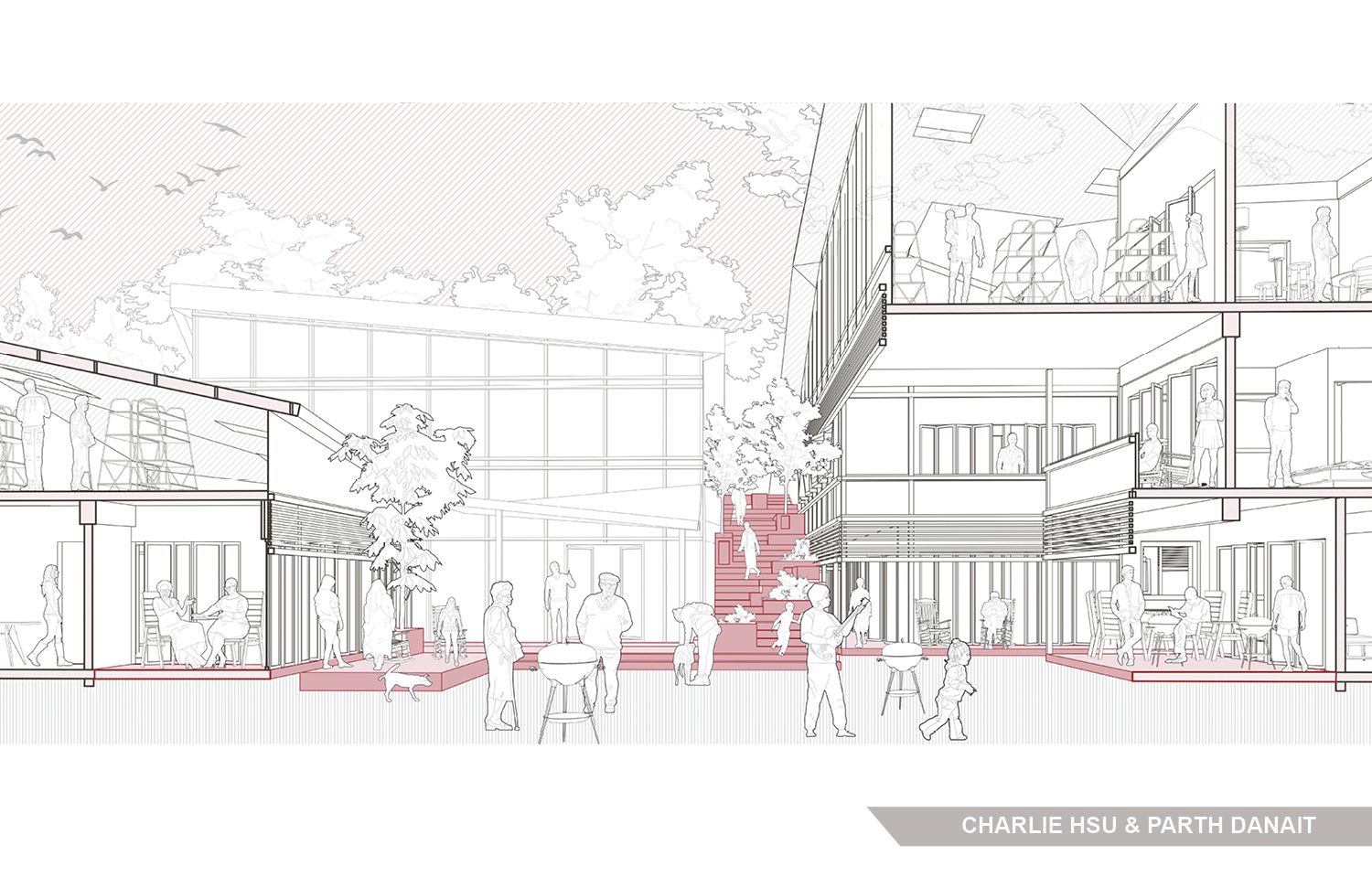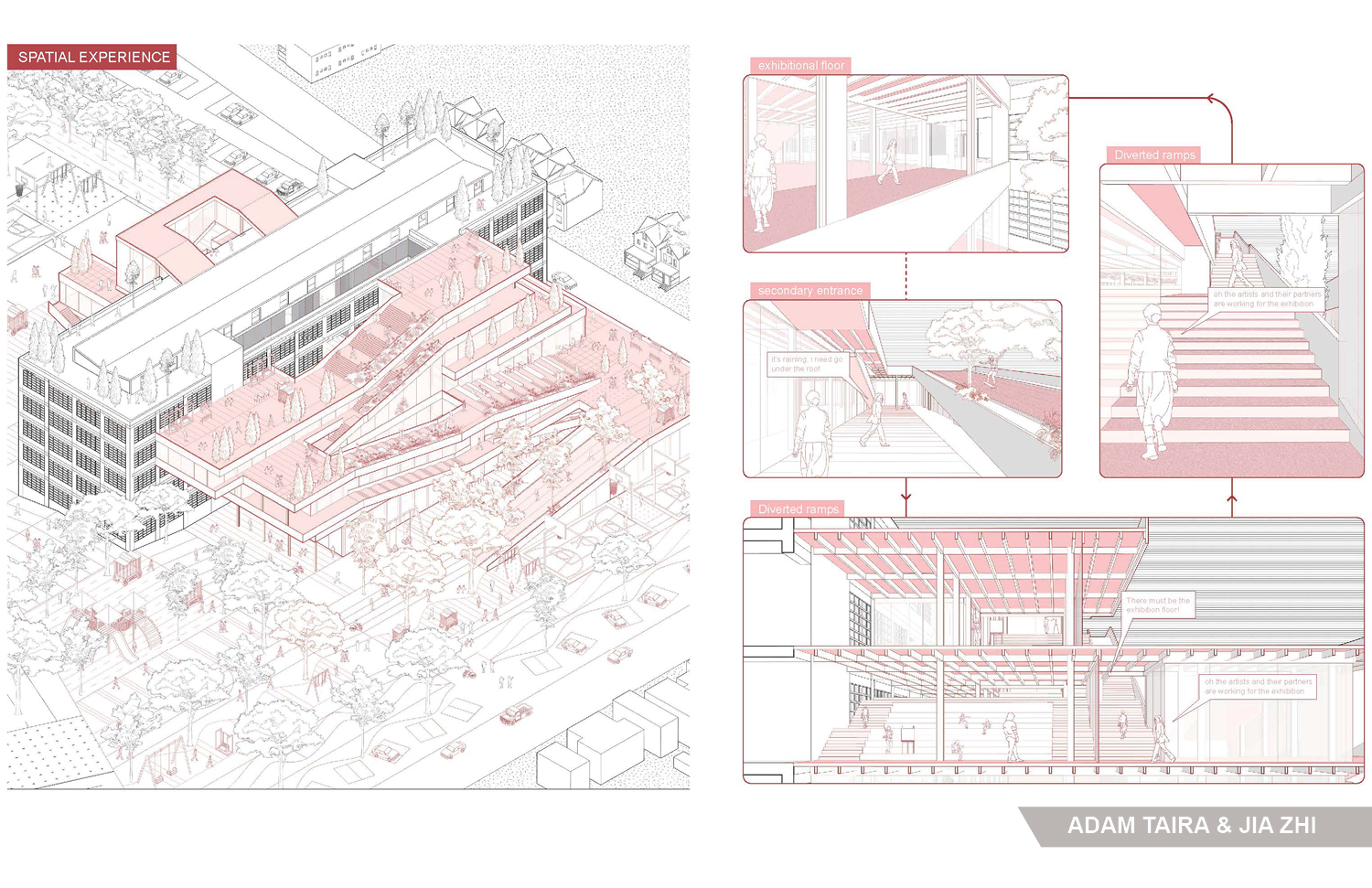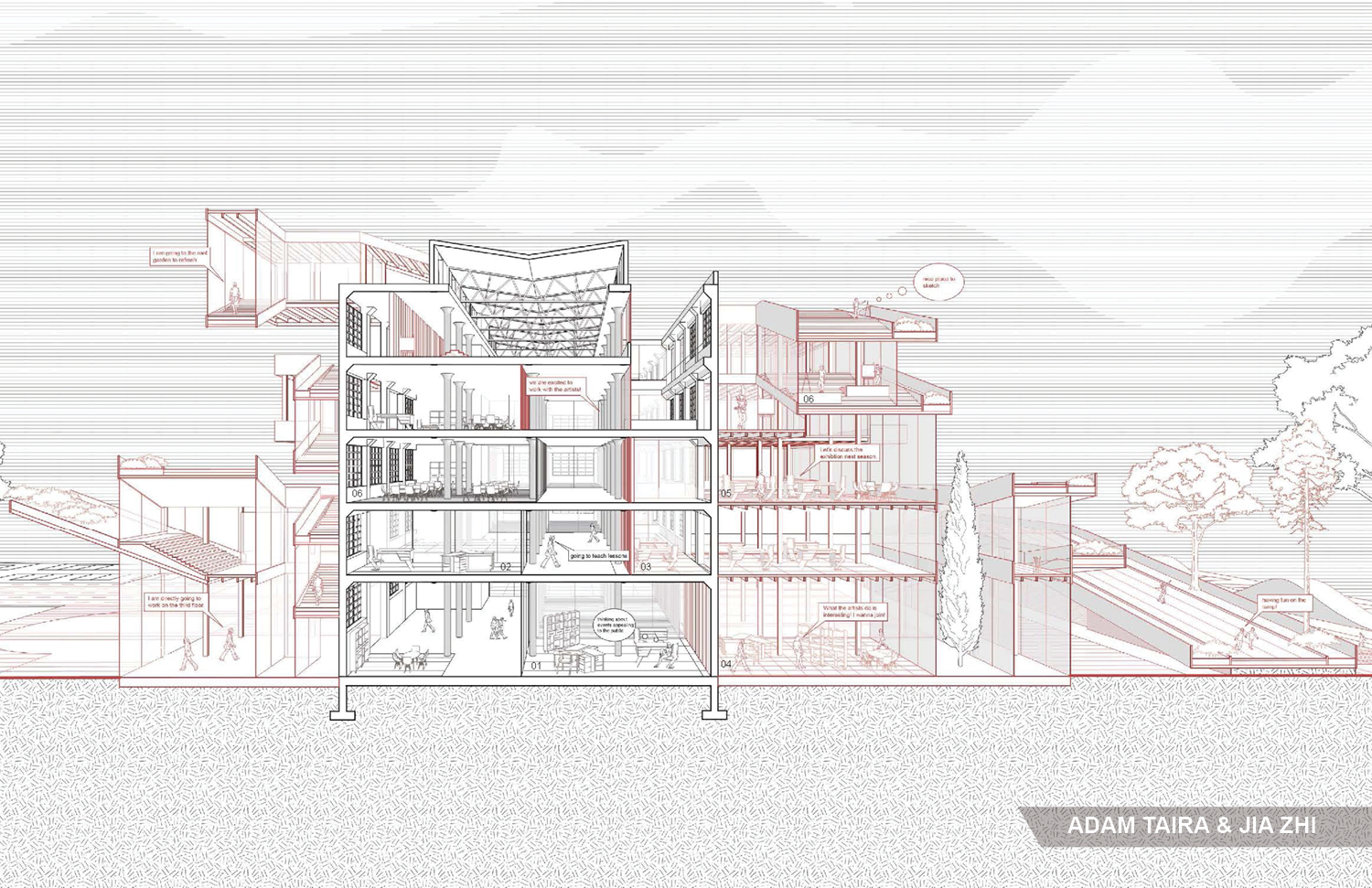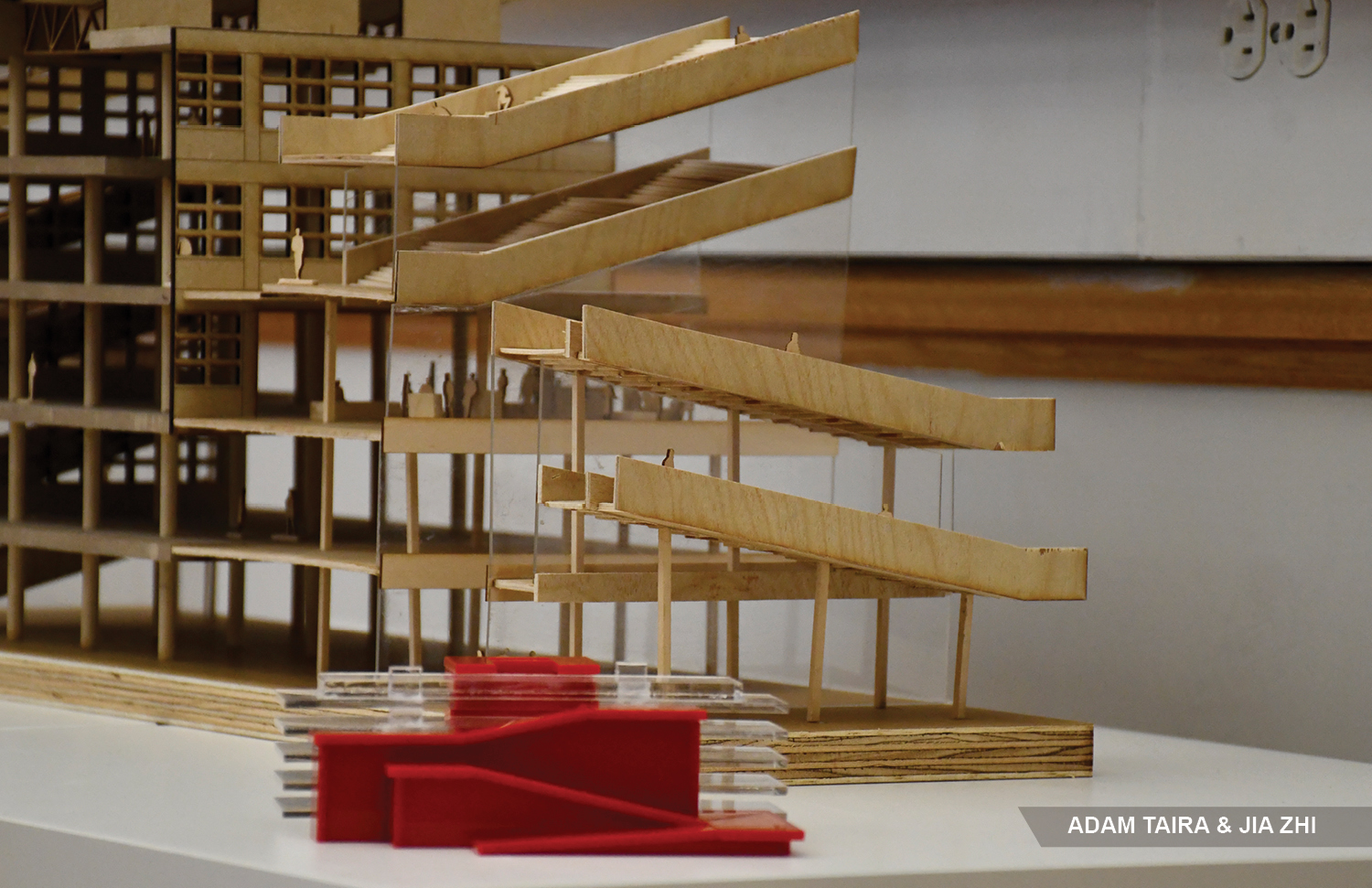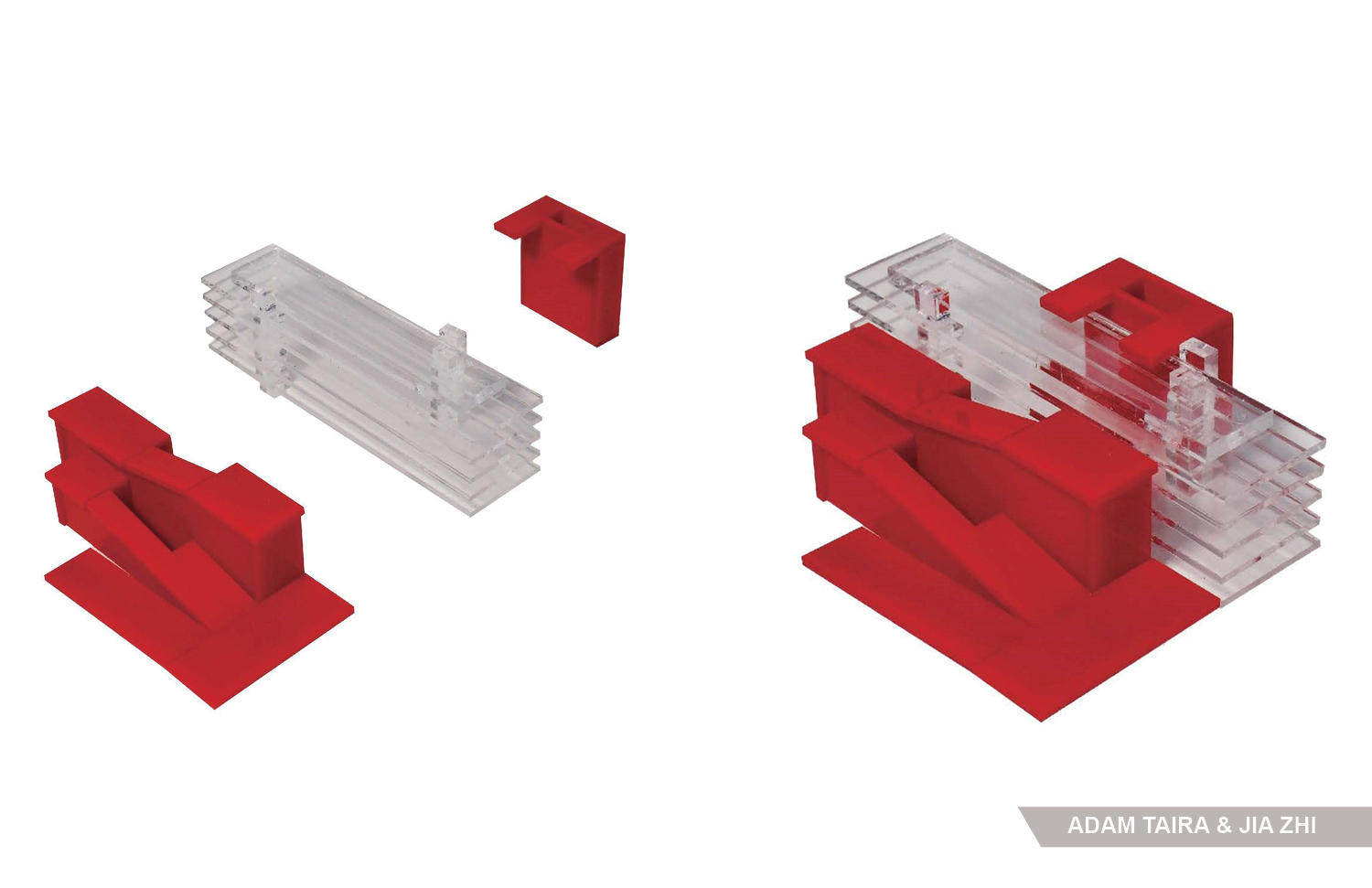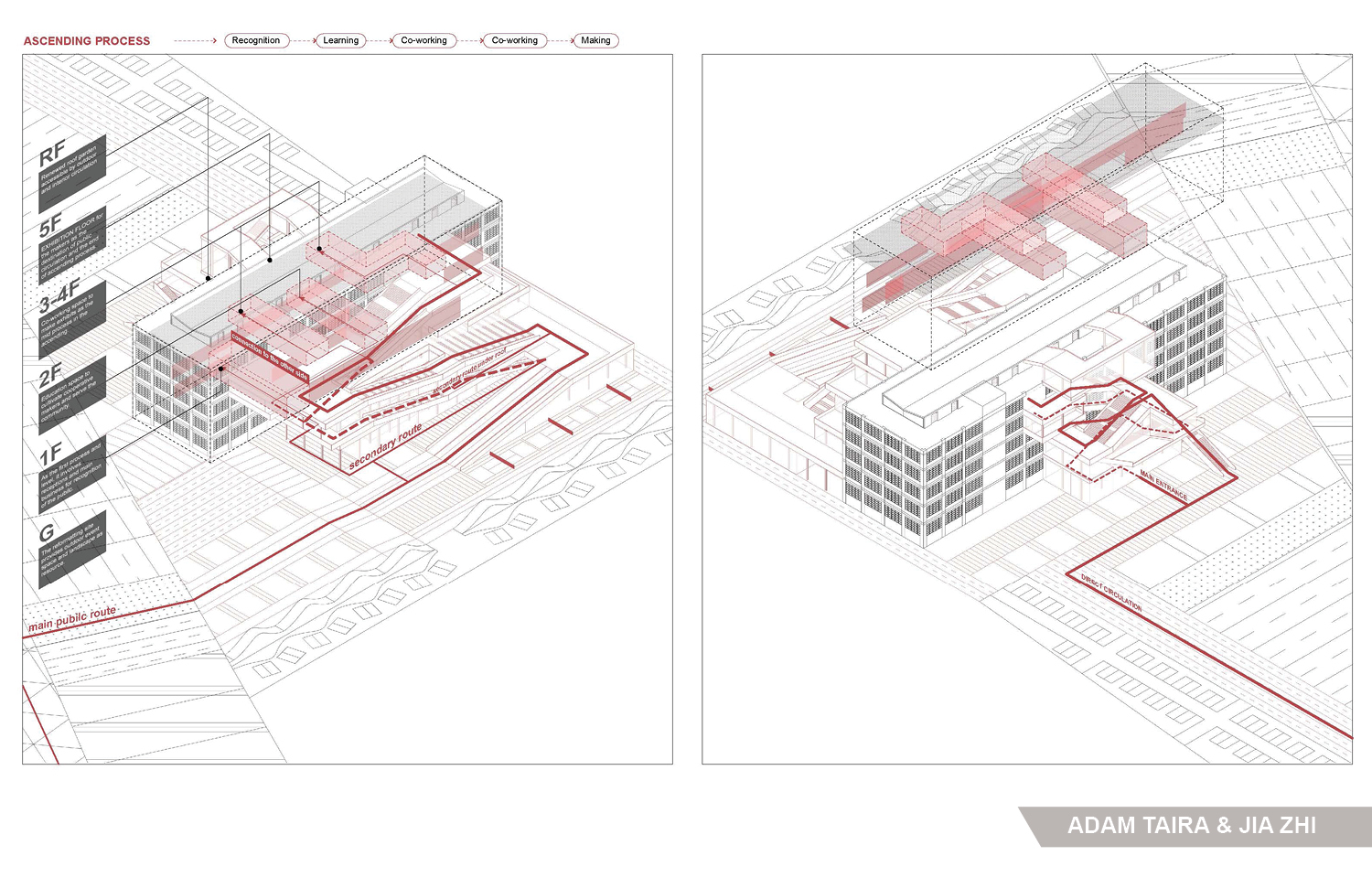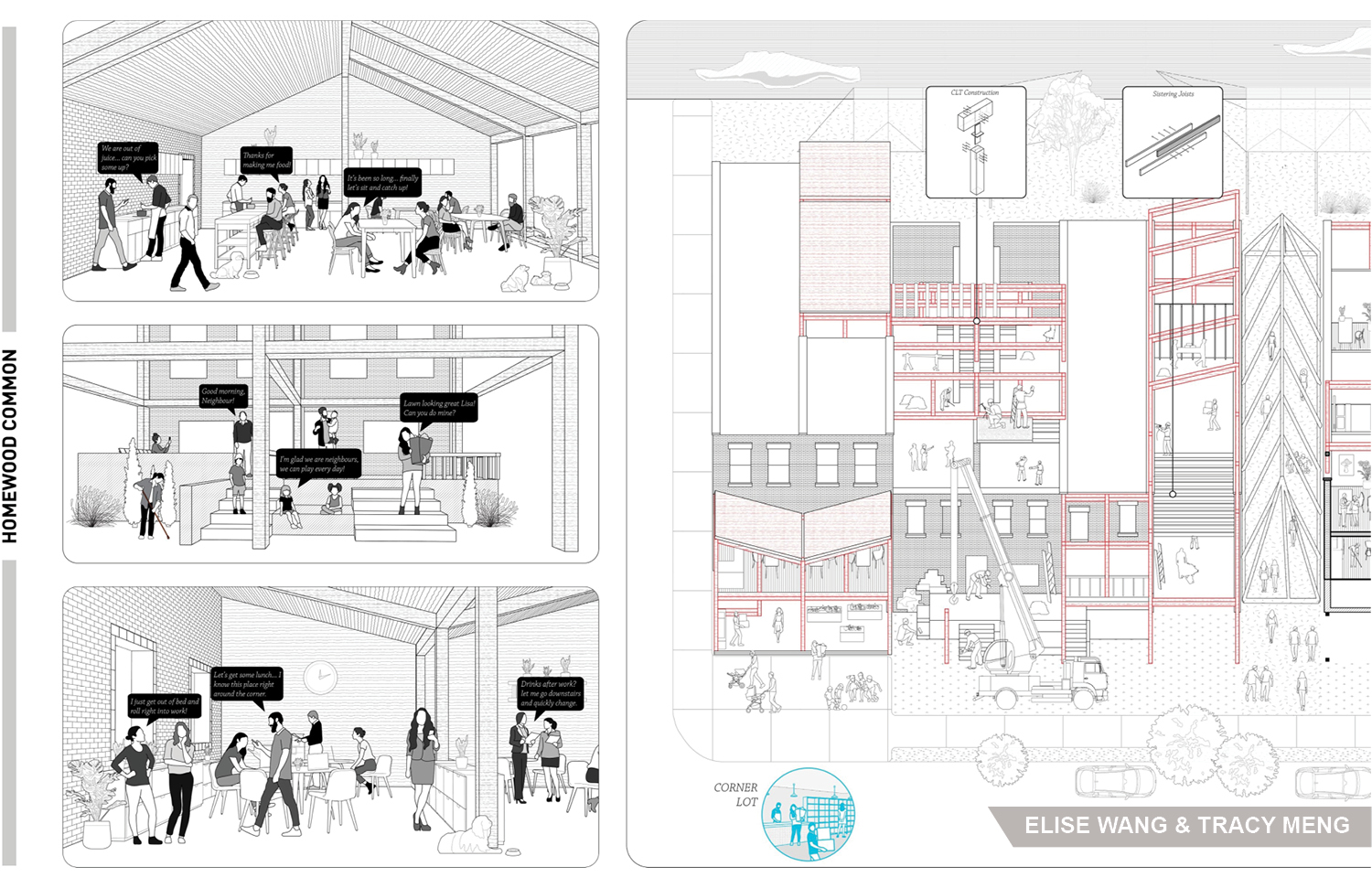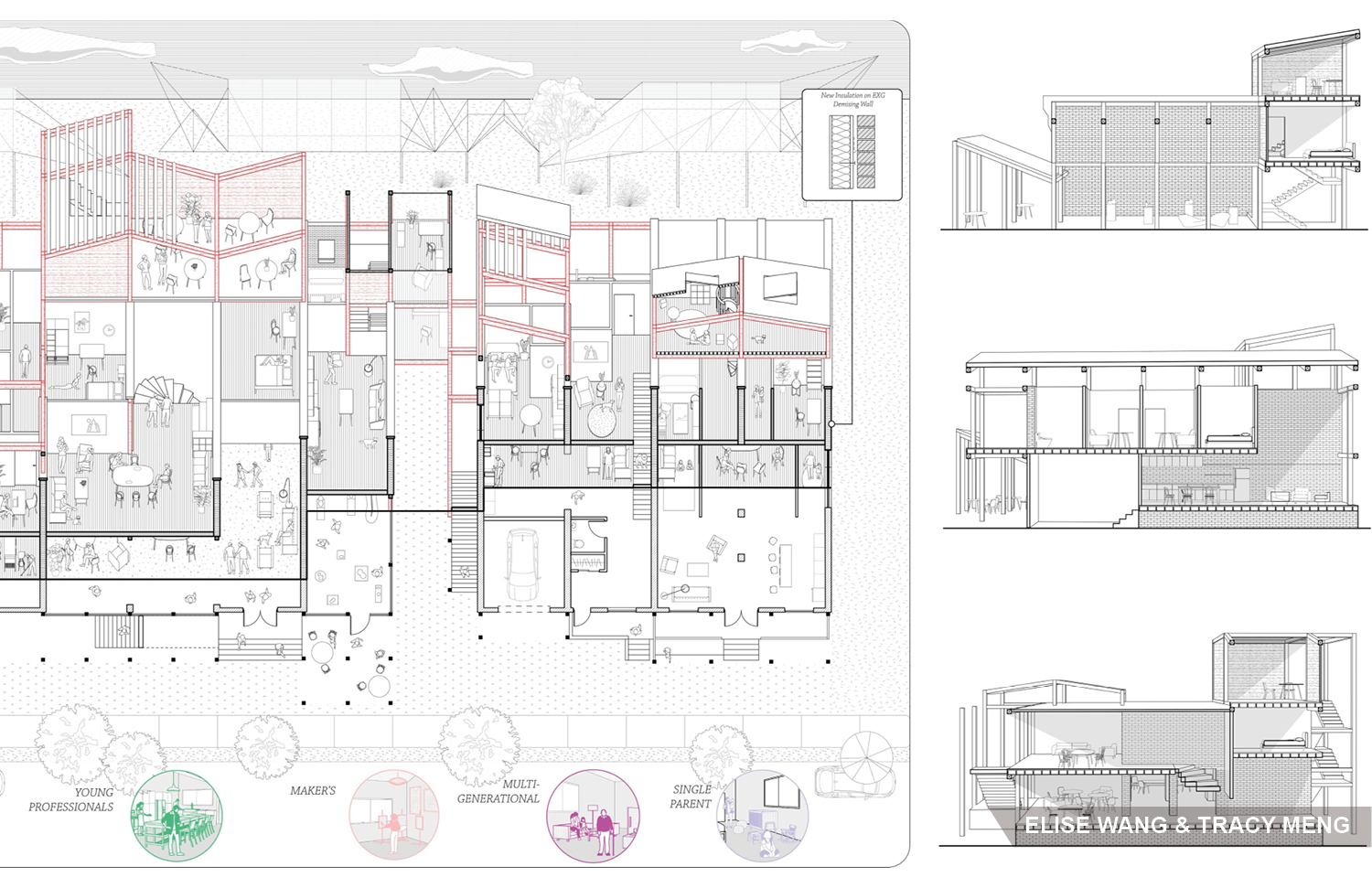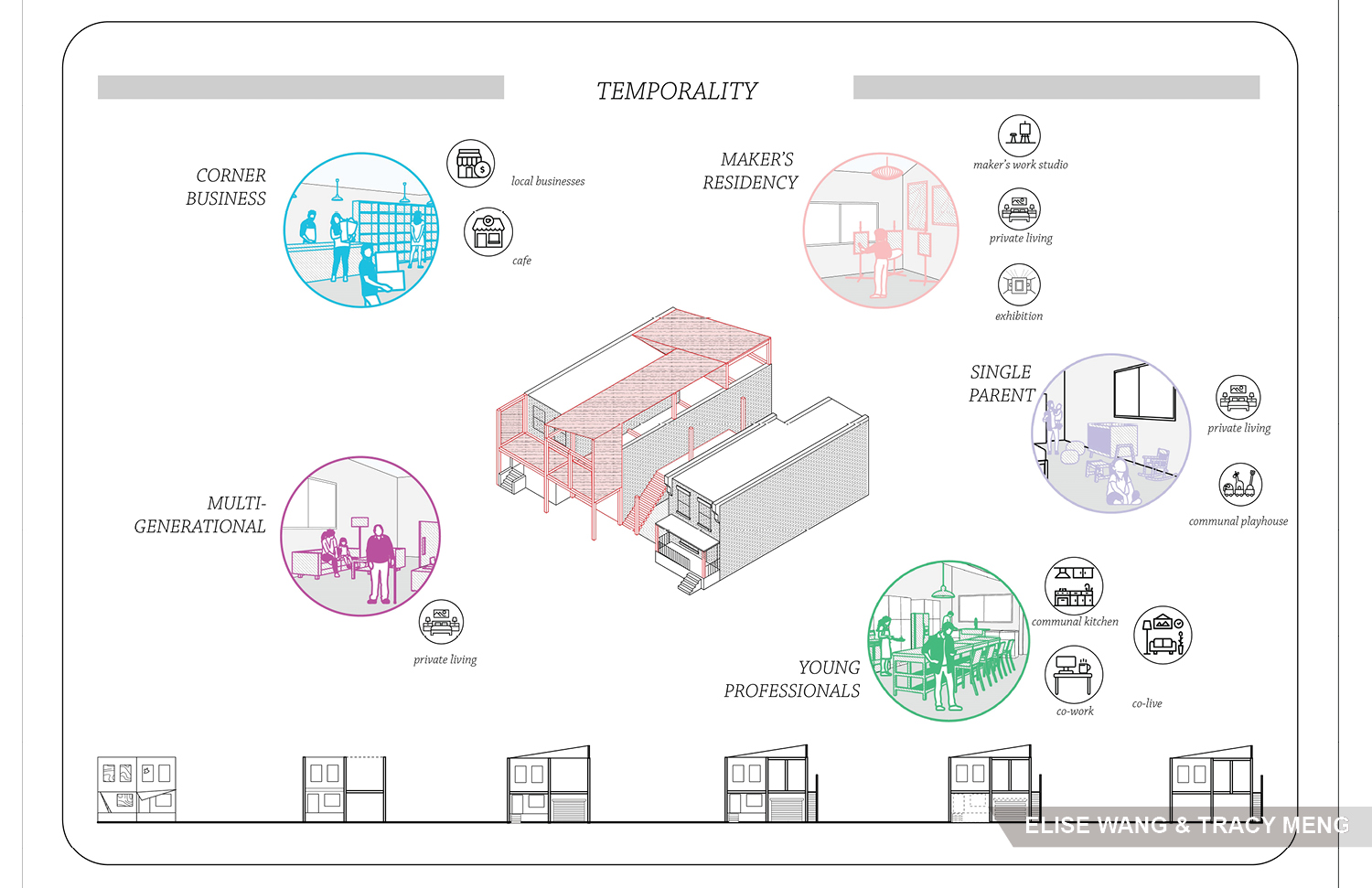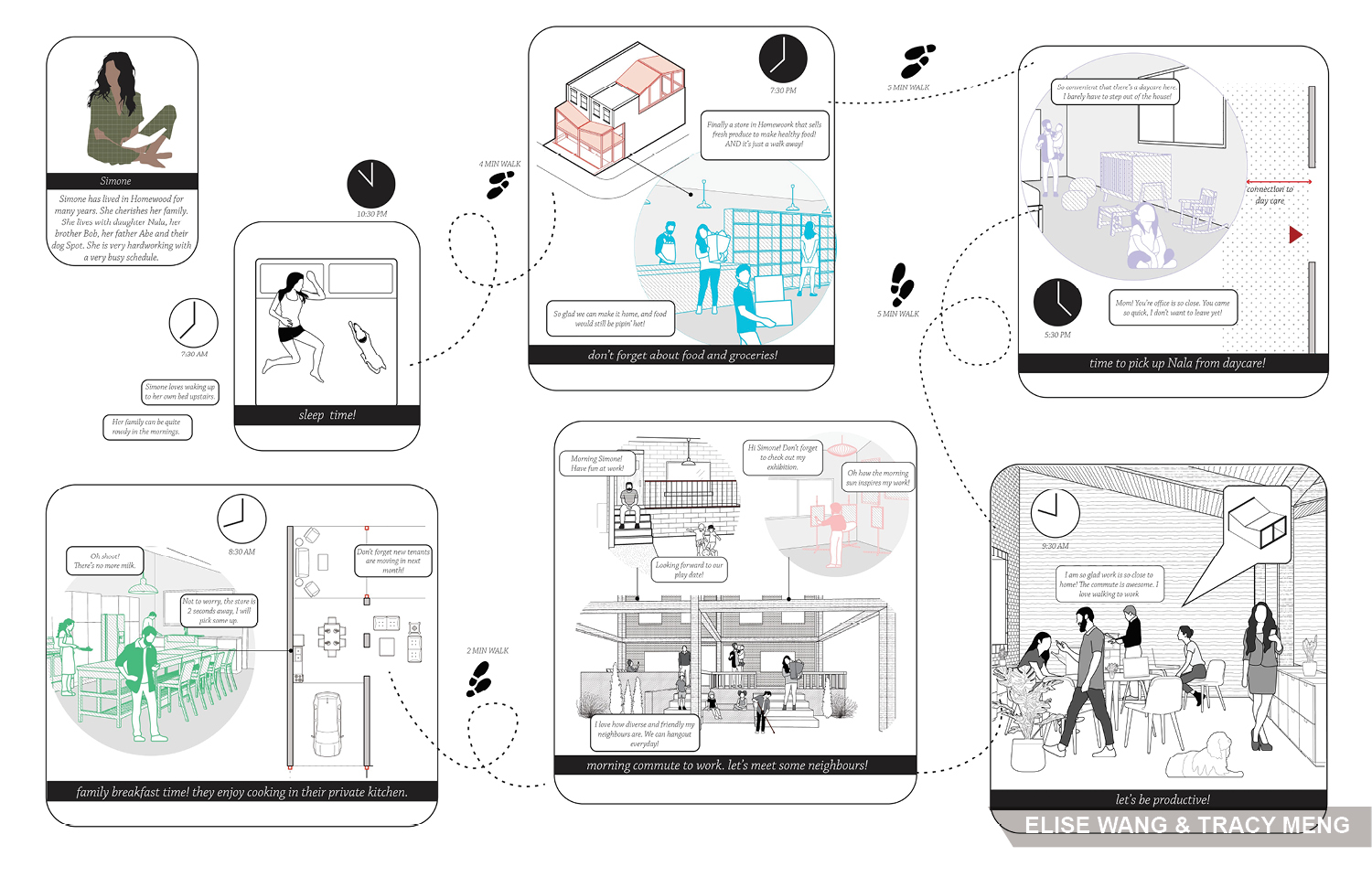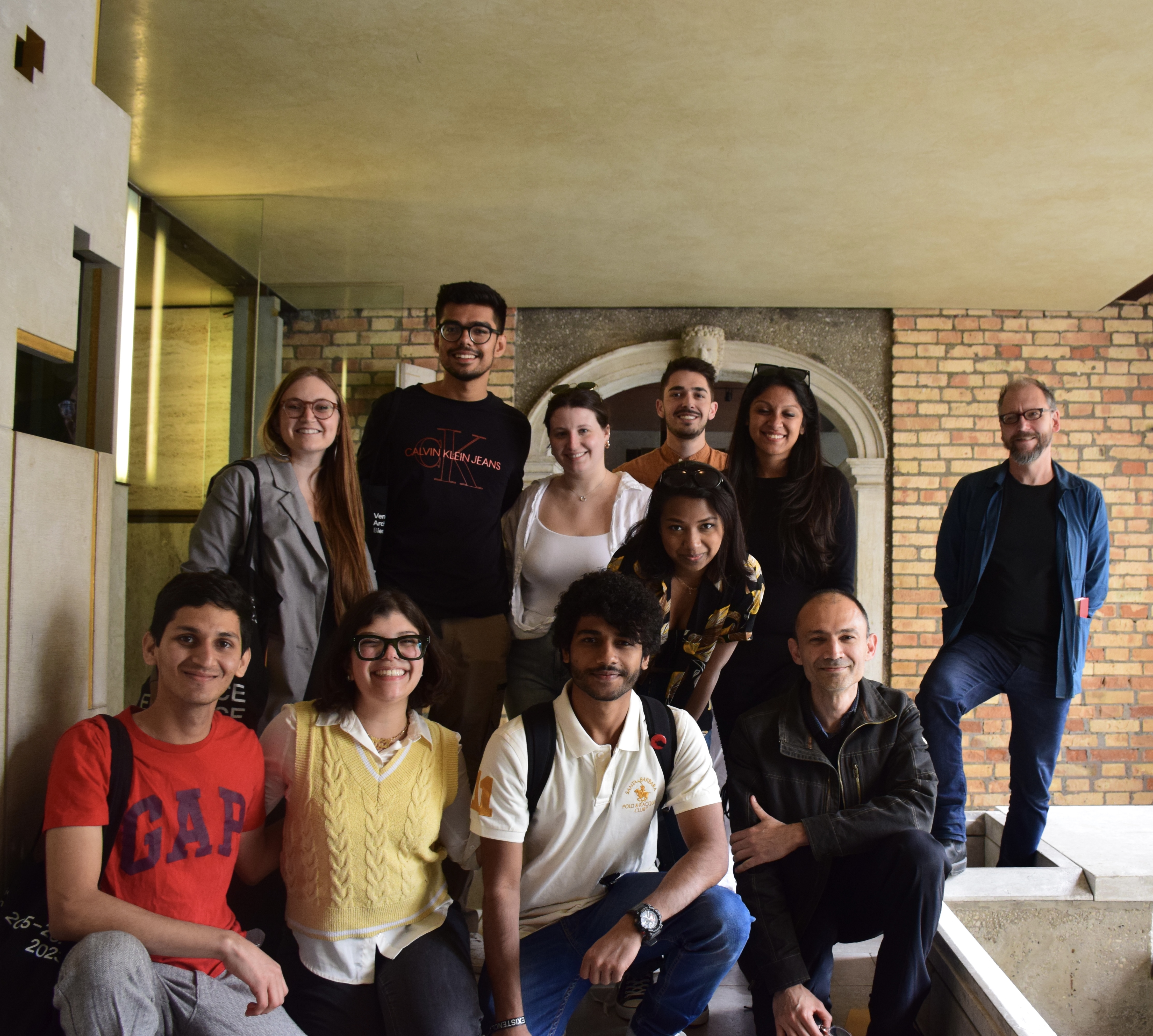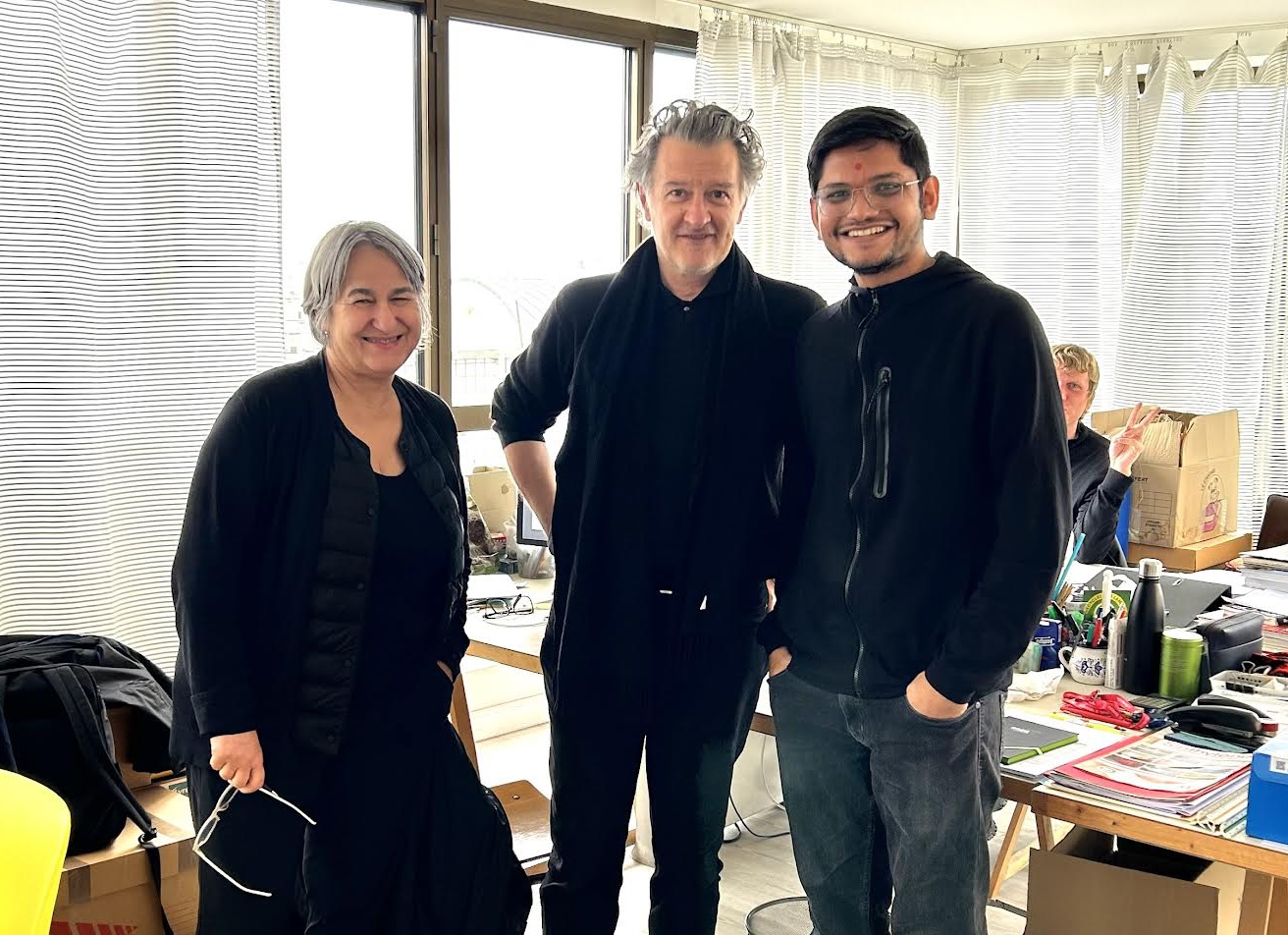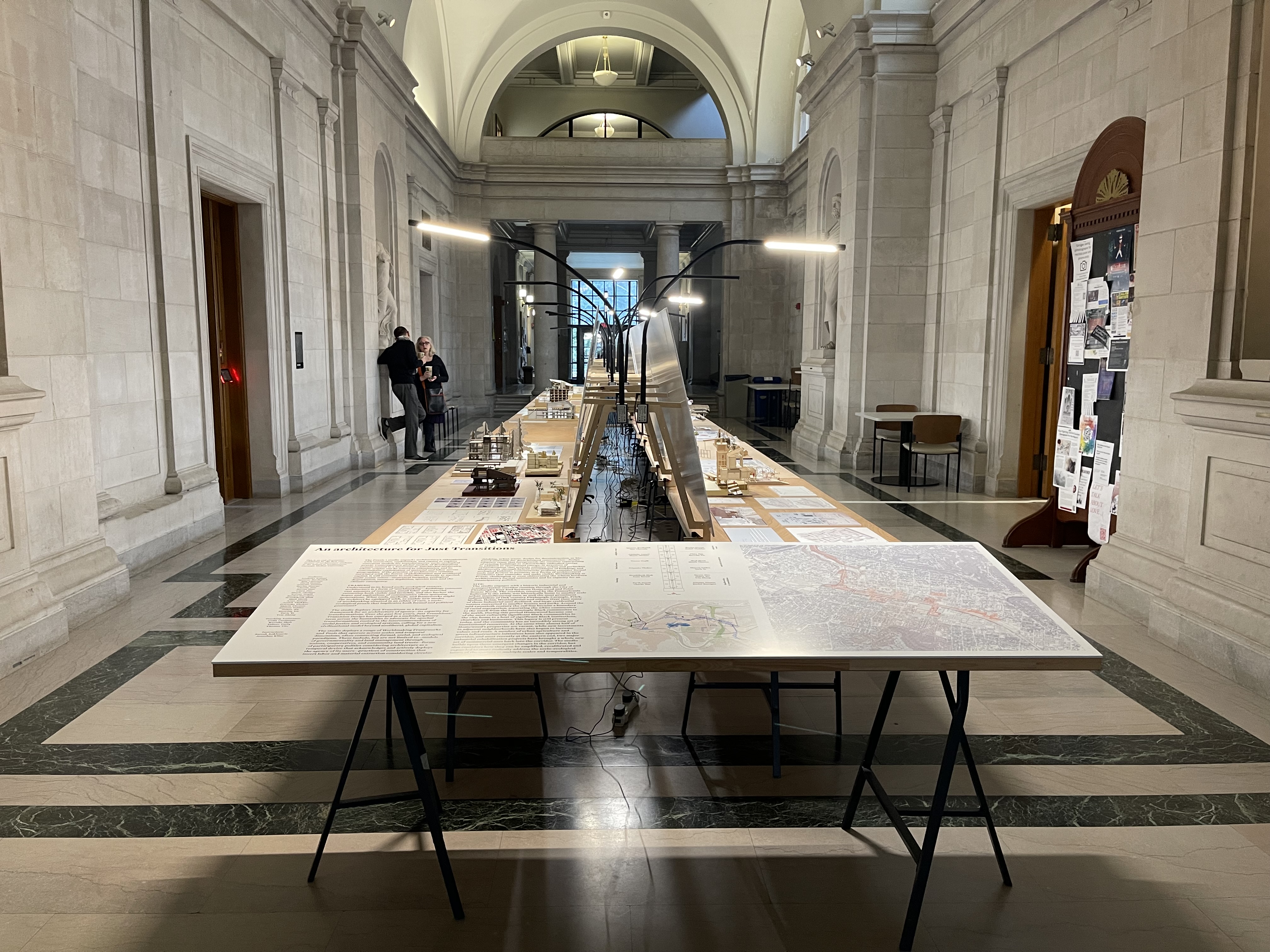Jump To...
Associate Teaching Professor & M.Arch Track Chair
Program Overview
The program addresses the grand challenges of our time through an understanding of Design Ethics at the intersections of Social Equity, Technology, and Climate Change. It trains students to demonstrate a solid intellectual base in Design Thinking by participating in advanced and emerging discourses in the discipline. The program is STEM-eligible for international students.
Program Curriculum
Curriculum Chart (Class of 2027)
Curriculum Chart (Class of 2026)
Curriculum Chart (Class of 2025)
The curriculum aligns closely with the Pedagogies dialogues at Carnegie Mellon Architecture to offer courses in three simultaneous tracks: Design Fundamentals, Design Ethics and Design Research. The two-year M.Arch curriculum features advanced design methods that focus on design-research, synthesis, and integration at every level through deep disciplinary and interdisciplinary engagement of sites, buildings, landscapes, ecologies, and technical systems.
The curriculum chart outlines the minimum required courses that all students are required to take to achieve professional standards by graduation (including NAAB Program and Student Criteria). The curriculum requires students to take selectives (courses offered at Carnegie Mellon Architecture) and free electives (courses offered at Carnegie Mellon University outside CM-A).
If previous coursework meets standards of equivalency, students may apply to “Opt-out” of select courses. All opt-out petitions are made after admission has been granted, and are thoroughly reviewed by the program's faculty to ensure competency and completion of equivalent course work. All course substitutions must be of professional nature and approved by the program Track Chair.
-
The Praxis 1 and 2 sequence of studios in the first year are required for all incoming students: the Fall "Praxis 1: Transition Design" studio is followed by the "Praxis 2: Advanced Construction" studio. Students are also required to take courses in Architectural Theory, Situating Research, Materials and Assembly, Statics and Structures, Environment and Real Estate.
-
The second year allows students to begin to specialize and craft a unique curriculum that reflects their emerging professional interests from a wide range of electives offered within the School of Architecture, College of Fine Arts (CFA), and CMU. Electives outside of the School of Architecture and Electives within the School allow students to establish their own areas of interest and specialization.
In both the fall and spring of 2nd year, students select from a diverse range of Advanced Synthesis Option Studios (ASOS). The ASOS are a set of advanced studios offered every semester on various topics chosen by studio faculty based on their research and design interests. Topics vary from year to year, and are constantly evolving to keep pace with the rapidly changing profession and global scene. “Global Studio” options allow students to travel internationally during the semester.
Advanced Synthesis Option Studios (ASOS) Catalogs
M.Arch students have the option of petitioning to Opt-out of the ASOS studios to pursue an individual Thesis. Students that elect to do so are required to take three preparatory courses: 1) Situating Research; 2) Pre-Thesis; and 3) Thesis Seminar. This allows students to develop an understanding of research methods and the theoretical underpinnings of architectural thesis. Students culminate their studies with a one-semester M.Arch Design-research Thesis that is included in Carnegie Mellon Architecture's Thesis exhibition.
Student Work
Program Details
-
The M.Arch is a two-year program. Students must complete a minimum residency of four (4) academic semesters with full-time status (minimum 36 units per semester). Coursework taken during the summer at CMU or at other institutions may be used to satisfy NAAB Student Performance Criteria, but do not reduce the residency requirement.
-
In addition to the standard requirements for all graduate students in Carnegie Mellon Architecture, students in the M.Arch program must satisfy the following:
- Students must complete a minimum of 180 units of coursework relevant to the professional degree and approved by the Track Chair.
- All course substitutions must be approved by the program Track Chair.
-
Carnegie Mellon’s M.Arch is a two-year, first professional degree program designed for individuals who hold a pre-professional baccalaureate degree in architecture (B.A./ B.S. or equivalent), or a professional B.Arch architecture degree from an international university.
We seek to enroll a diverse group of self-motivated students from around the world who work in innovative ways to push the boundaries of the discipline.
We encourage prospective applicants to pursue broad, interdisciplinary undergraduate studies before enrolling in order to develop critical thinking about architecture’s rich and complex connections to other fields. We recommend: architectural experience of any kind, especially design studios related to buildings and physical environments; critical engagements with studying and making art; a fascination with how things are made. Additionally, we value reading and writing skills and engagements with the architectural discourse and the profession, as a culturally constructed diverse set of ideas. This includes a critical understanding of Modern Architecture and its histories.
At a minimum, candidates must demonstrate that they have completed the following courses at the undergraduate level:
- Architectural Design Studio Courses: 72 Units (24 Credit Hours)
- Fundamentals of Architectural History & Theory or equivalent: 18 Units (6 Credit Hours)
- Fundamentals of Structures and/or Construction Materials & Assembly or equivalent: 18 Units (6 Credit Hours)
- Fundamentals of Environmental Science and/or Systems or equivalent: 9 Units (3 Credit Hours)
- General Studies: 36 Units (12 Credit Hours)
We define general studies in alignment with NAAB's description that considers all non-architecture courses that provide basic knowledge and methodologies of the humanities, fine arts, mathematics, natural sciences, and social sciences.
When completing the application in SlideRoom, students will be required to give a detailed list of the number of courses under each topic including the name and credit hours for each course. This is documented as part of the admission process for all students applying to the M.Arch program. For more on the admissions process, please review the Graduate Admissions Website.
-
Information regarding the cost of CMU’s M.Arch program, including tuition & fees, living expenses, graduate scholarships & assistantships, and financial aid can be found on CM-A’s Graduate Admissions FAQ > “Tuition & Financial Support” webpage, as well as the university’s CFA 2025-2026 Graduate Tuition & Fees page.
To help reduce student expenses, CM-A subsidizes key tools and materials: printing is free on school machines; design software licenses are covered; most course readings are provided at no cost; studio faculty encourage use of recycled and found materials; and required studio field trips are partially funded.
M.Arch students should anticipate annual indirect costs of approximately $2,100 (including around $1,500 for course materials and supplies and $600 for required field trips/travel). All M.Arch students are expected to have a laptop compatible with required software. Students should ensure their current devices meet CM-A’s specifications or budget up to a one time cost of $2,000 for a new laptop. Some elective courses may involve additional material costs (up to $300) or optional field trips. All syllabi outline anticipated expenses in advance.
Student Experience
What Distinguishes the M.Arch at CMU?
-
The M.Arch locates "Design Ethics" as a central tenet in its mission of training architects to become leaders in architecture and related fields. If Design is a broad framework that entails a form of expertise and various modes of disciplinary and interdisciplinary intelligence, Design Ethics problematizes architectural design to consider emergent questions of architectural ethics as these intersect with core notions of design. In recent years, there has been a major realignment of pedagogy toward questions of architectural ethics, driven by the pressing socio-planetary challenges of our time that affect and are affected by the built environment. Design Ethics references a discursive set of values that drive architectural thinking at the intersection of these challenges—Care Repair & Maintenance, Adaptive Reuse, Biomaterials, Decarbonization, Urban Informatics, Participatory Practices, Design for Disassembly, and combating Obsolescence in the built environment.
-
Considering social, ecological, and technological challenges of our time, the M.Arch program engages with research across territories including sites in the Global South. Through seminars, design studios, thesis, and summer travel programs, students work across a range of issues to consider material ecologies, labor, craft, housing, infrastructure, and urbanity—their overlaps, hybrids, and peculiar manifestations in place. In doing so they consider the uneven impacts of planetary transformations on specific locales and landscapes.
-
Our small, focused program promotes close interactions among faculty and students, easy access to our state-of-the-art research and fabrication facilities, and personalized mentoring, learning, and research. Our curriculum delivers both the required expertise and allows students to follow their own agendas in the studios, in the SoA’s research labs, and across the university.
-
Set within one of the world’s preeminent research universities focused on advanced technologies, and within a College of Fine Arts, the M.Arch constructs leading-edge learning experiences at the intersection of the arts and technology, often connected through computation. We encourage students to use their architectural education to create successful futures in careers only they can envision.
-
Where better to study architecture than in a venerable city with both an industrial heritage and a tech-driven future, with rich cultural institutions and a dynamic start-up culture? The buzz you’ve heard is true: Pittsburgh is one of the USA’s most livable, affordable, green innovation hubs that provides the perfect home and laboratory for research, design, working, and living.
-
In the M.Arch program, technology is more than a technique or tool: we emphasize digital workflows and the seamless integration of computation, systems analysis, and data into our creative design and invention processes. M.Arch students have access to a host of learning and research spaces, including the Robert L. Preger Intelligent Workplace (IW), Computational Design Lab (Code Lab), Design Fabrication Lab (dFAB Lab), the SHOP, Frank-Ratchye STUDIO for Creative Inquiry, IDeATe labs, and others across the campus.
Outcomes
Program Outcomes
At the successful completion of this program students will be able to…
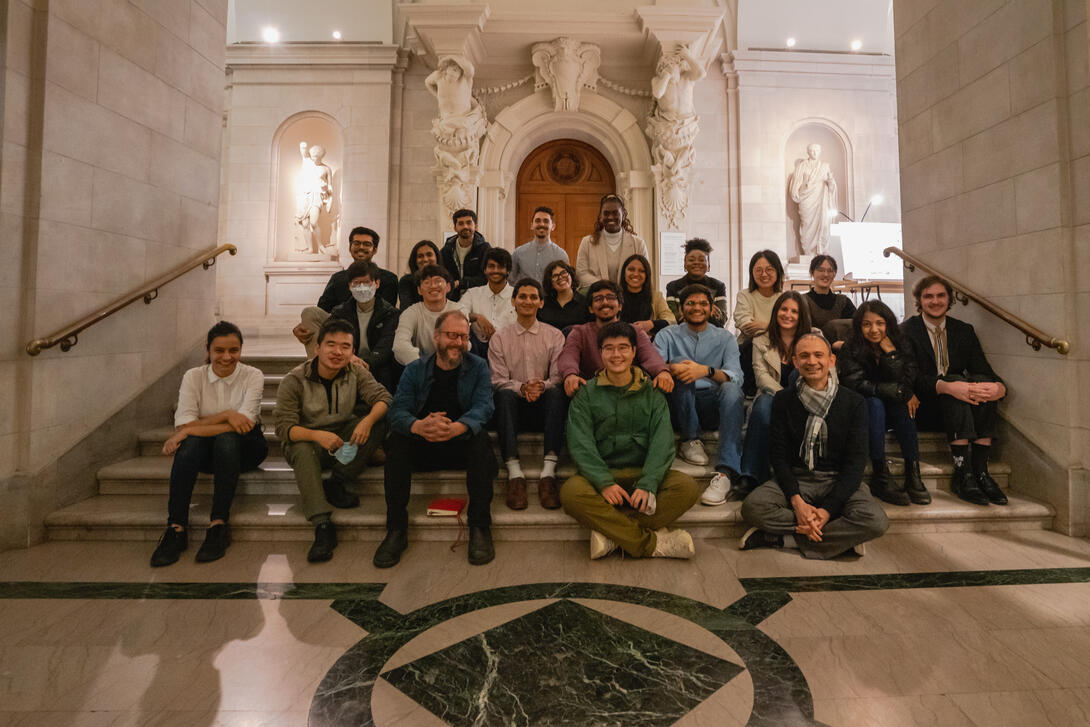
Demonstrate Core Professional Competencies
Apply the knowledge gained in the program to engage in the practice of architecture in its various multivalent capacities, including a path toward professional licensure in the United States.
Define, conceptualize, represent, and communicate design solutions that encompass multiple social, political, and ecological challenges, that are meaningful contributions to the built environment.
Generate integrated design solutions through a multidimensional process (research, prototyping, interaction, evaluation, redesign), that promotes an understanding of design as the primary means of synthesizing many forms of expertise and knowledge.
Solve complex problems through the use of advanced, future-oriented, computational design techniques in the design process.
Describe the role of architecture in working with community groups, diverse stakeholders, and divergent cultural perspectives through participatory design practices (e.g., acknowledging the impacts of regional geography, complex histories). This includes an understanding of the Greater Pittsburgh and the Appalachian region, as a geography for study considering its complex histories, layered challenges, and potentials for design and research.
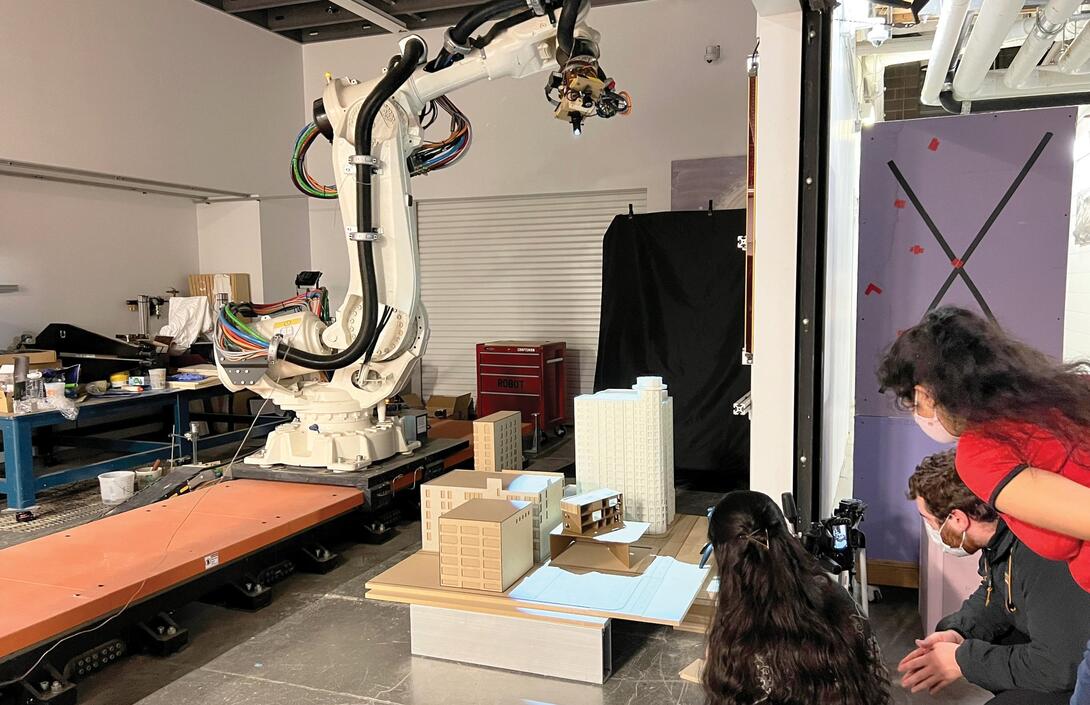
Understand architecture as an Ethical Praxis that considers the grand challenges of our time
Apply specific skills in Design Ethics toward addressing the grand challenges of our time at the intersections of Social Equity, Technology, and Climate change.
Advocate and adopt core design values for buildings including but not limited to Care Repair & Maintenance, Adaptive Reuse, Biomaterials, Decarbonization, Urban Informatics, Participatory Practices, Design for Disassembly, and combating Obsolescence in the built environment.
Describe transdisciplinary, creative, and scholarly nature of Design Research at Carnegie Mellon through collaborations with related subdisciplines with the Graduate programs at the School of Architecture, or through interdisciplinary interaction with CMU's renowned programs in the sciences, humanities, business, and engineering.
Demonstrate Global Disciplinary Knowledge and Critical Thinking
Demonstrate critical thinking by participating in advanced and emerging discourse within the discipline through design, representation, oral, and written skills.
Demonstrate a solid intellectual base in the history and theory of architecture, including the parallel and divergent histories of indigenous, vernacular, regional, nonwestern cultures.
Understand, use, and critique architectural precedents in advancing Global Disciplinary knowledge.
Travel Awards
The Master of Architecture program grants travel awards each spring for selected students to support work grounded in architectural design research. Recovering from the lockdown the covid pandemic, the travel awards facilitate research as it relates to a range of diverse contexts, practices and cultures. Students are encouraged to take on research projects on areas of their choice that will be further developed through research papers or through a thesis or an independent study.
The proposed dates of the travel are during the Spring or Summer Break. The grant amount is per the applicant's need but does not exceeding $3000. Students are responsible for their own travel plans and accommodations. Upon completion of the travel students deliver a "PechaKucha" style presentation of their travel study and ongoing research.
Program Faculty
For more information about CMU's M.Arch program and the generous financial support available to the most qualified candidates, please contact Sarosh Anklesaria, M.Arch Track Chair. For more information about instructors of the ASO studios and electives, visit the main Faculty & Staff page.
Special Faculty
Special Faculty
Associate Teaching Professor & M.Arch Track Chair
Associate Professor & Associate Head for Design Research
Assistant Teaching Professor
Special Faculty
Associate Professor, CBPD Co-Director, DDes Track Chair & Director for Student Relations
Professor & MSSD Track Chair
Associate Professor
Associate Professor & Associate Head for Design Fundamentals
Special Faculty
Associate Professor & Laboratory for Architectural Ceramic Experimentation (LACE) Director
Adjunct Faculty
Associate Professor, MUD Track Chair & RCI Director
Associate Professor & Associate Head for Design Ethics
Professor of Practice
Special Faculty
Special Faculty in Architectural Design
Special Faculty
Special Faculty
Professor & Head
Professor of Practice
University Professor
Assistant Teaching Professor
T. David Fitz-Gibbon Assistant Professor of Architecture & Regenerative Structures Laboratory Director
Ann Kalla Visiting Professor
University Professor & CBPD Co-Director
Adjunct Faculty
Special Faculty in Architectural Design
Affiliated Faculty & IDeATe Associate Dean
Lucian and Rita Caste Assistant Professor in Architecture & Situated Computation + Design Lab Director
Assistant Professor in Building Technology, BPD Track Chair & CBPD Co-Director
Curator for Public Programs, Director of Publications & Special Faculty
Assistant Teaching Professor
Admissions Resources
Are you a current student looking for resources? Handbooks, procedures and other information can be found on the Student Resources page.



